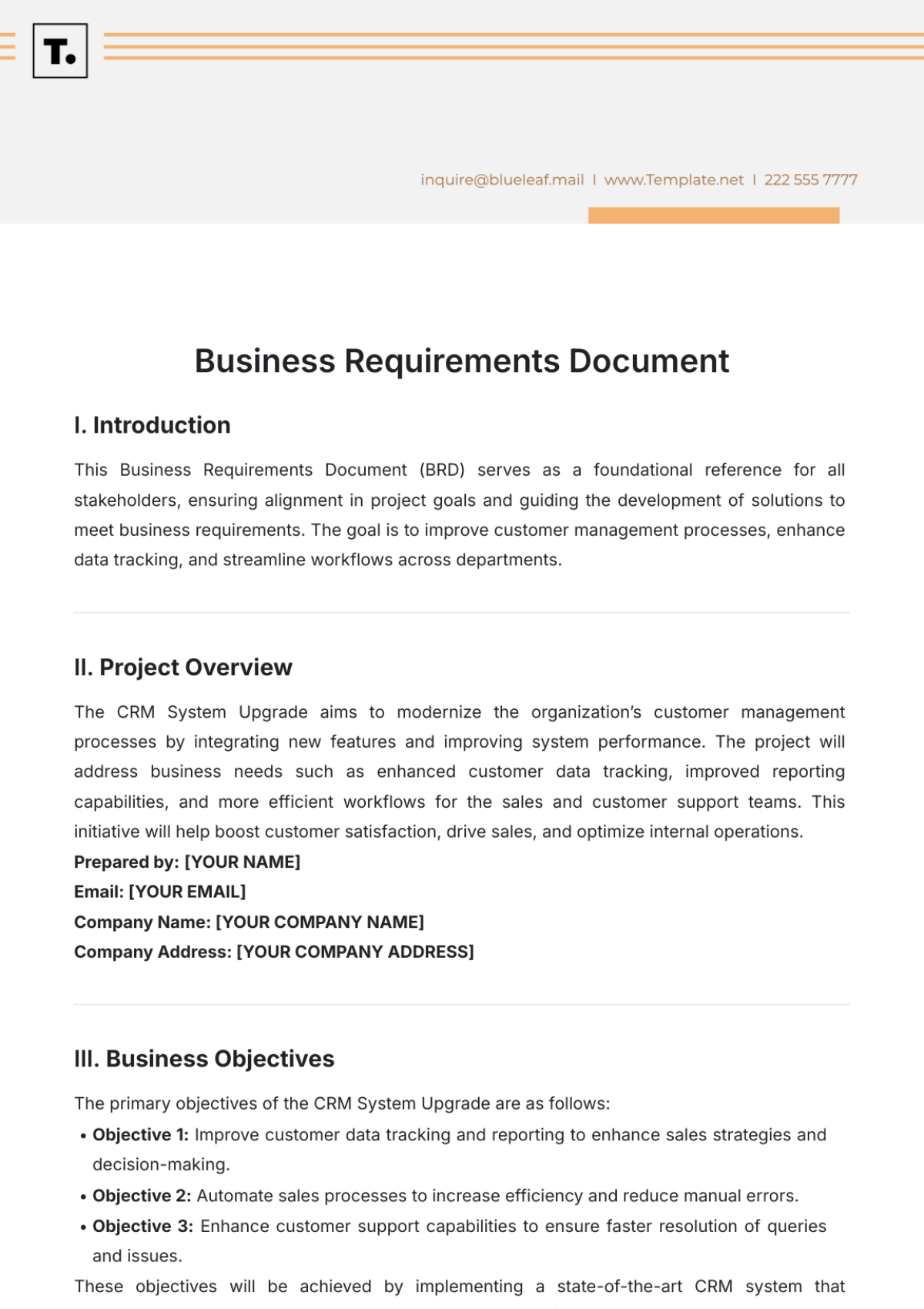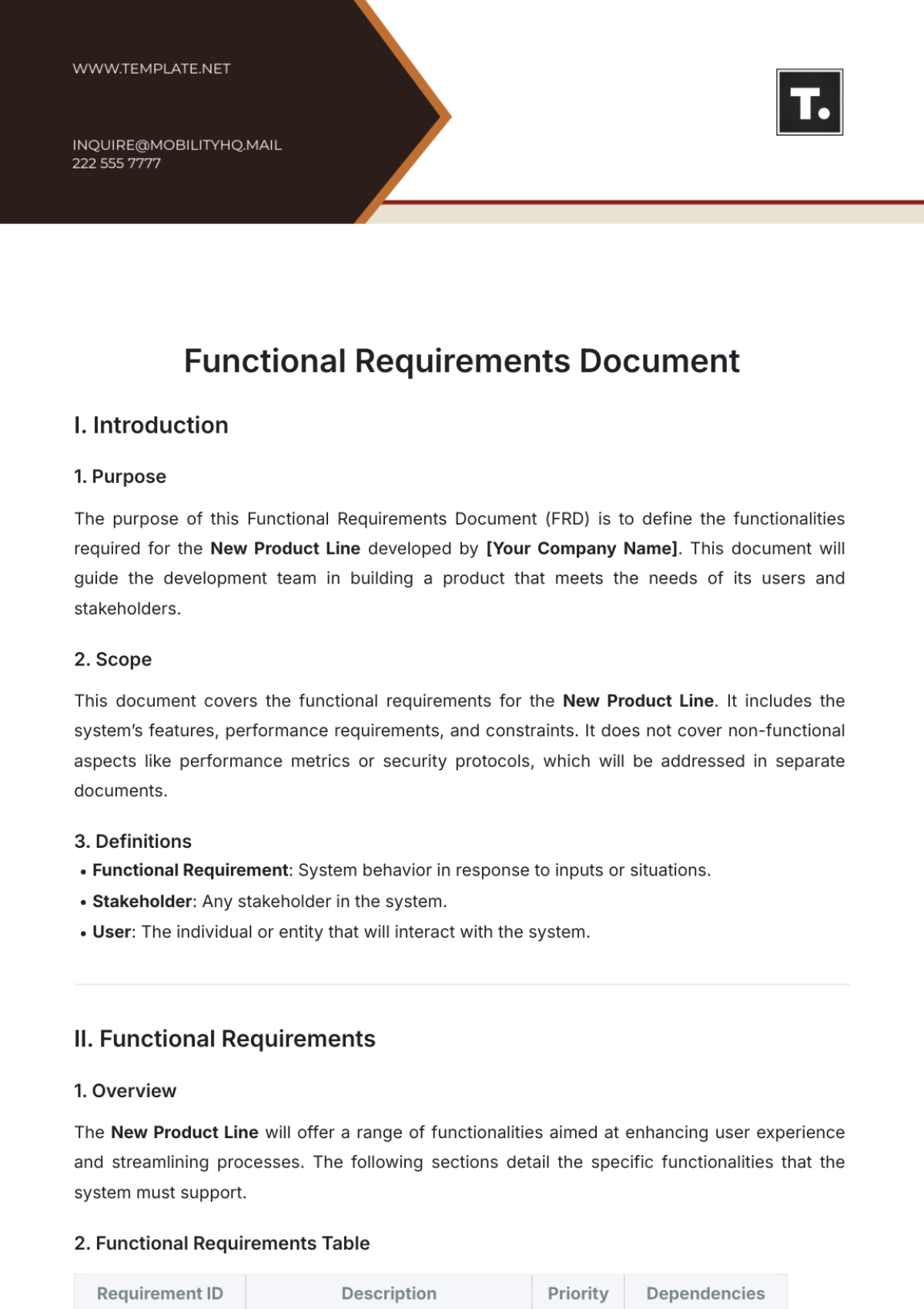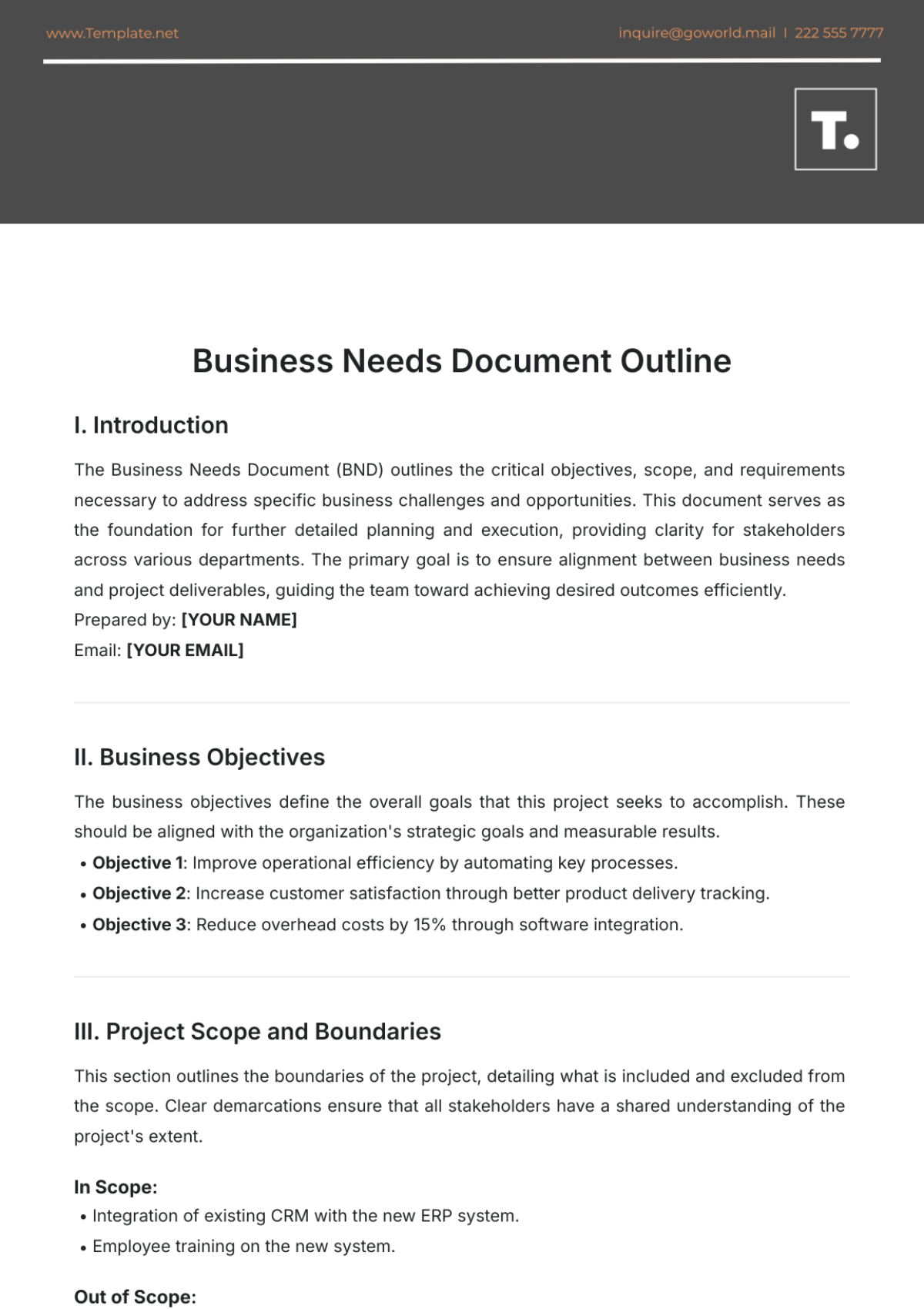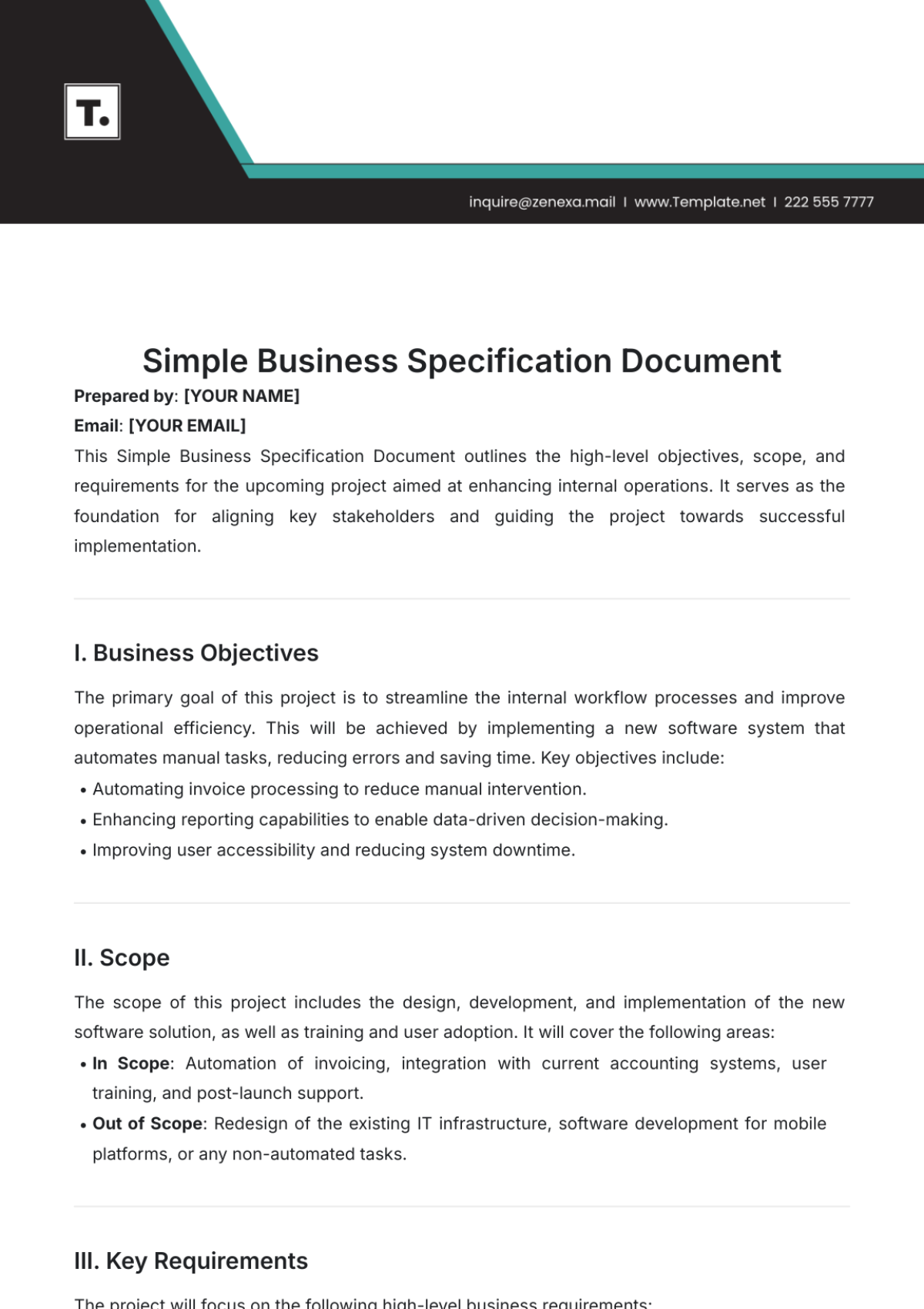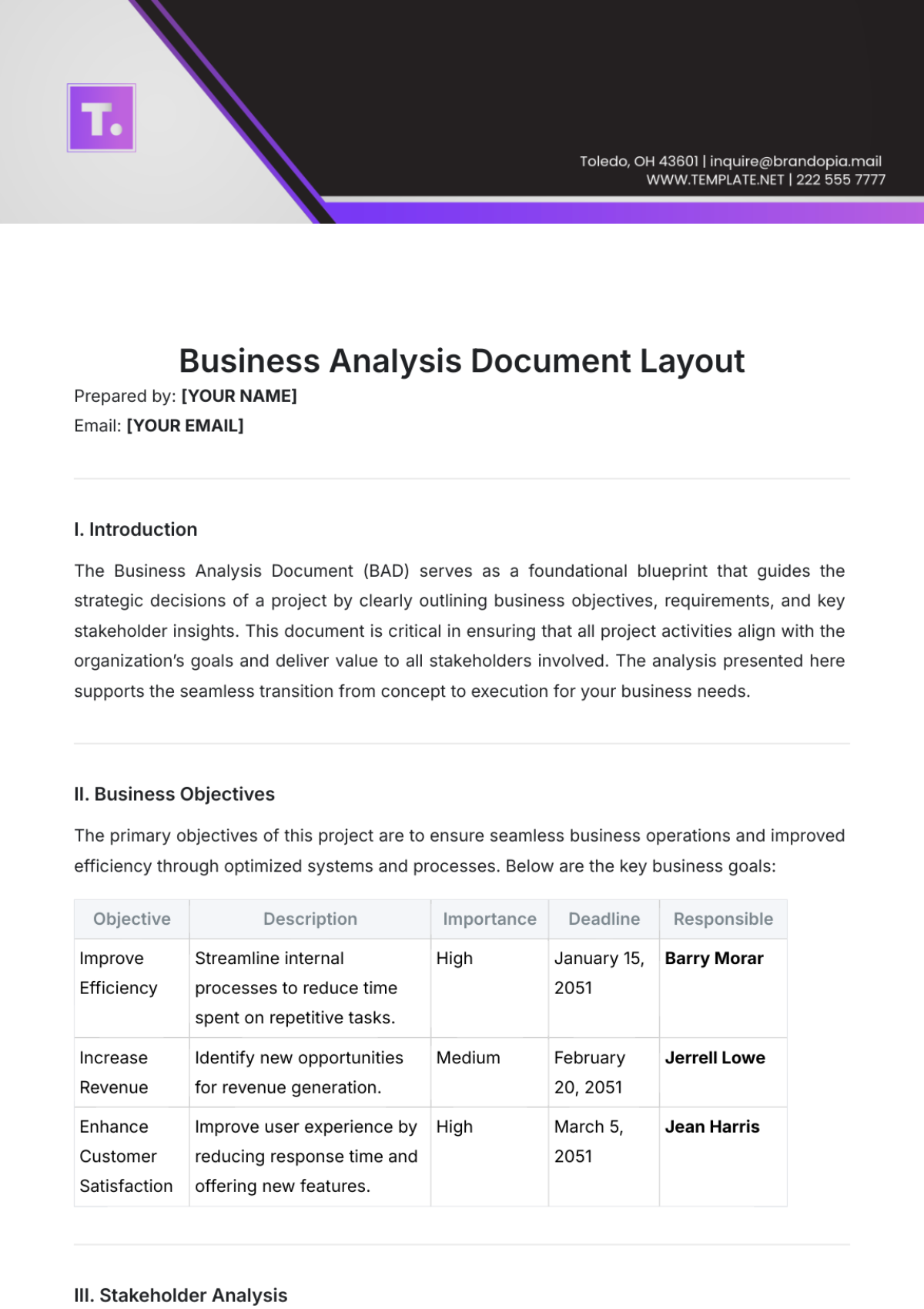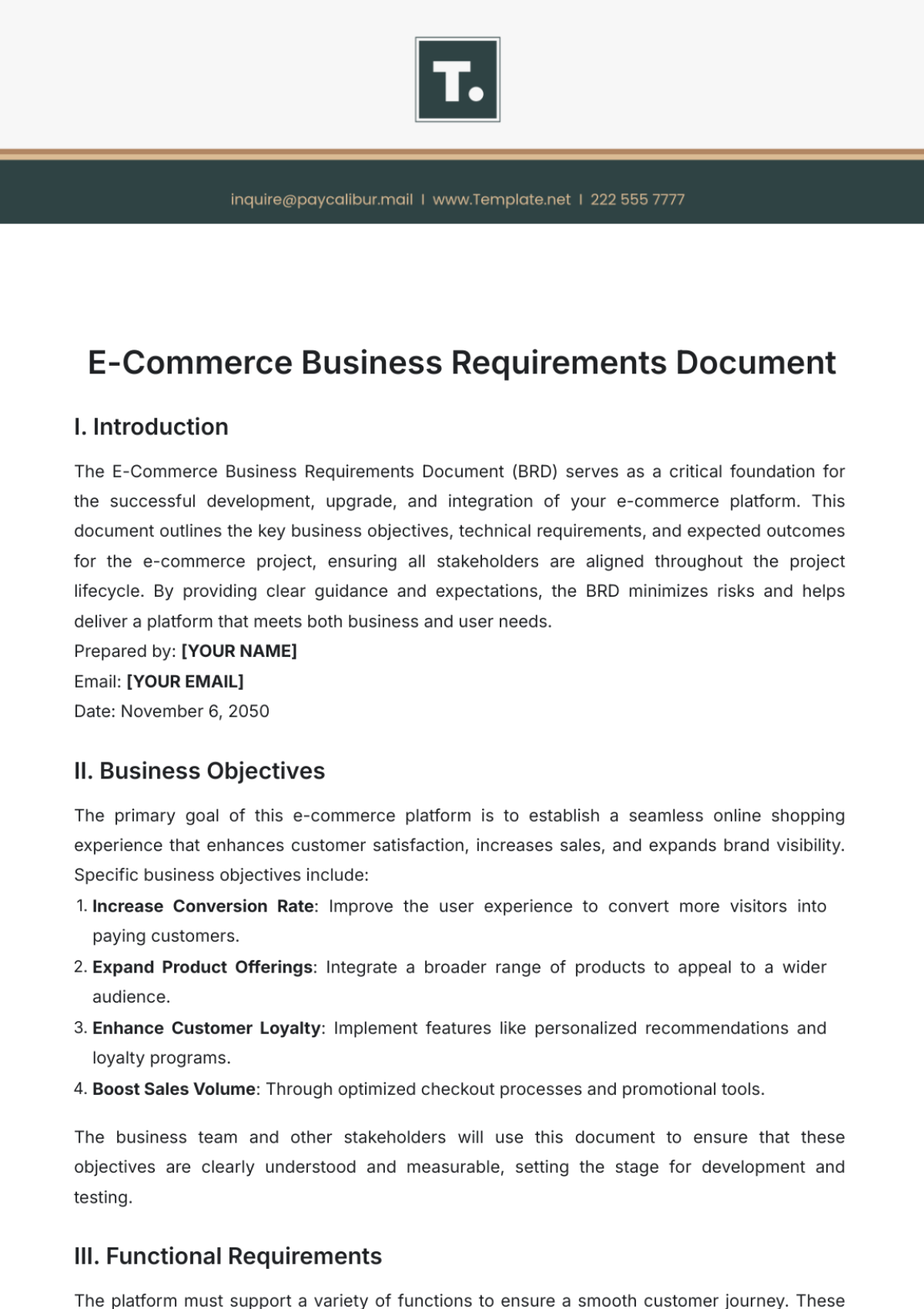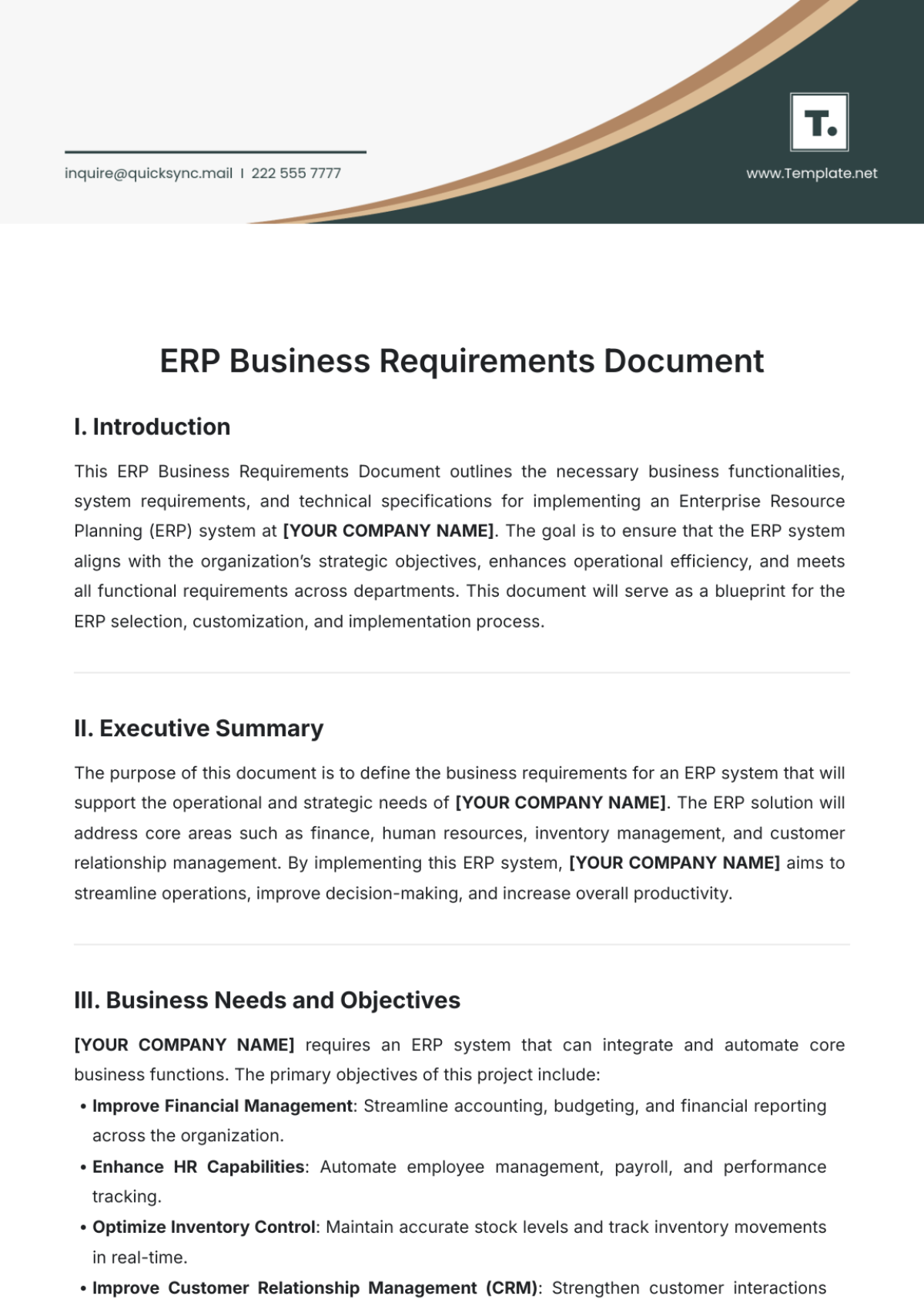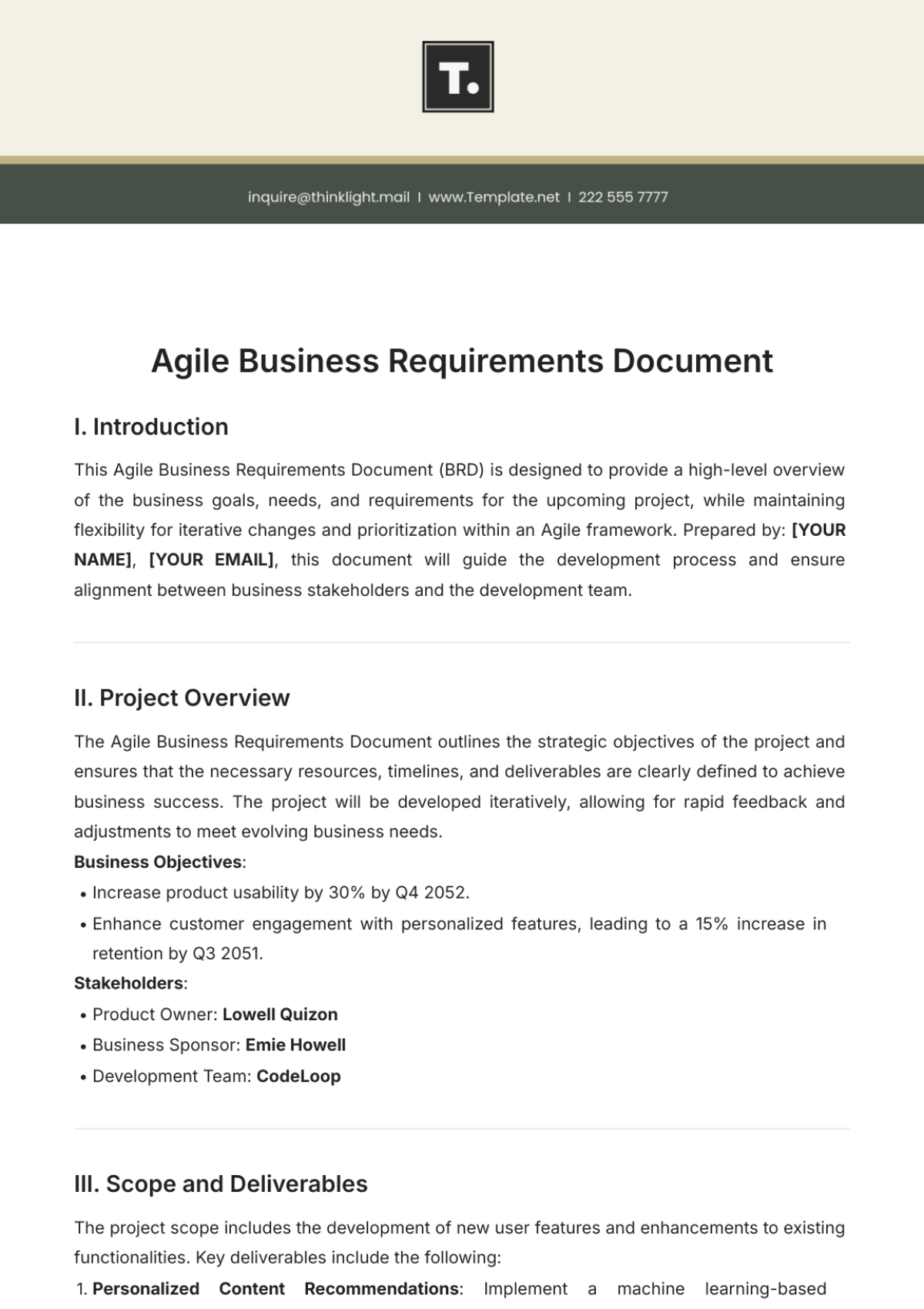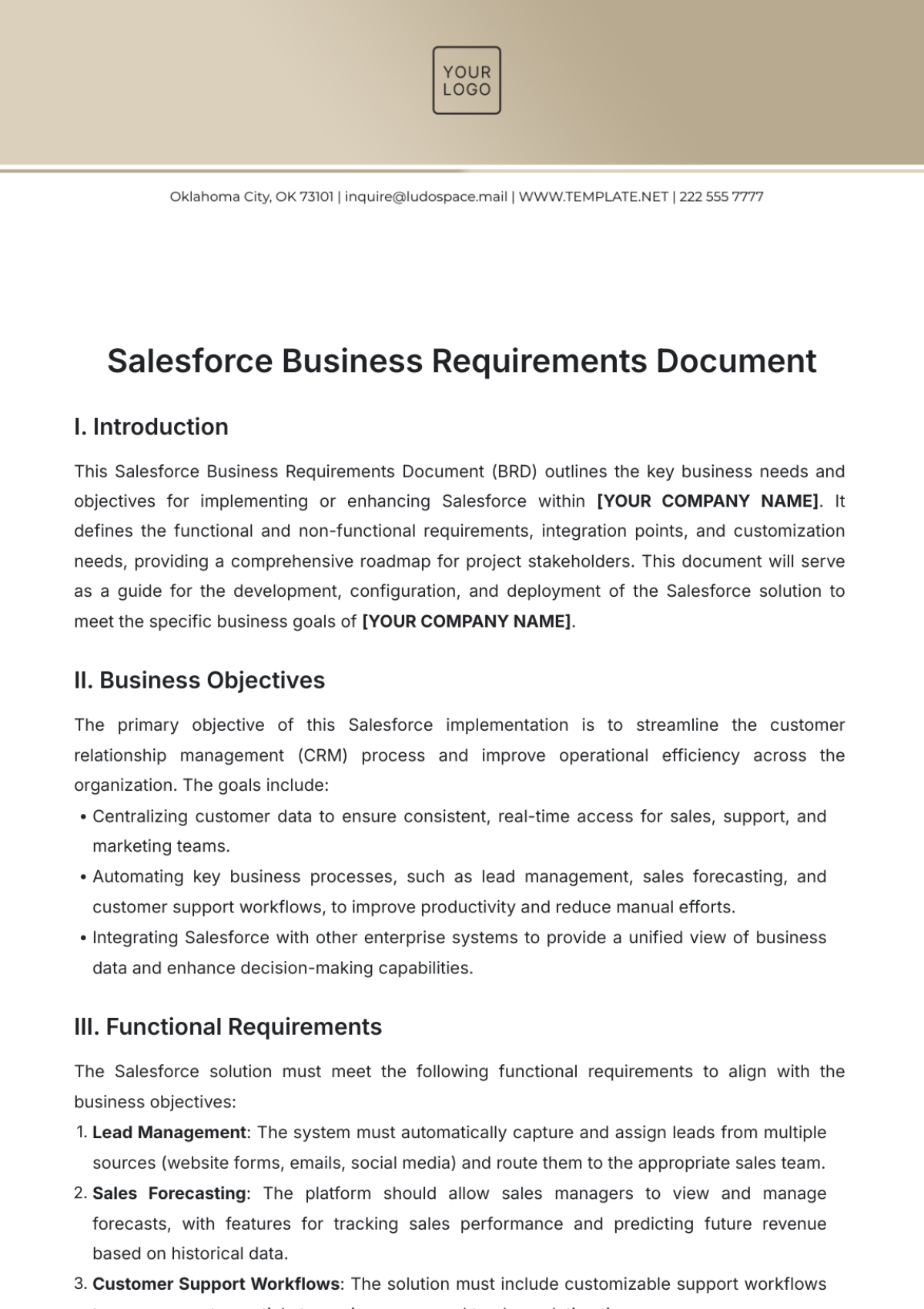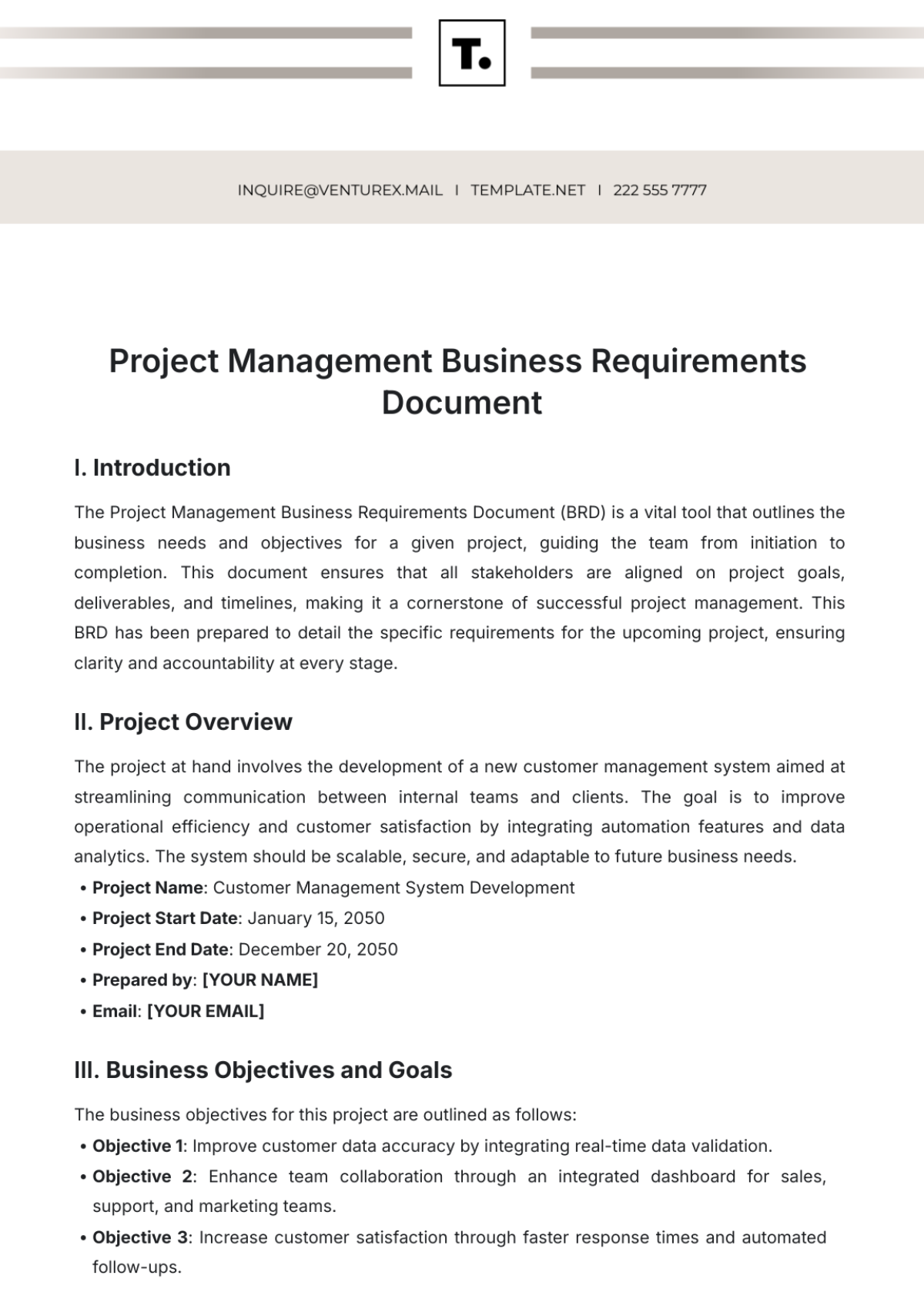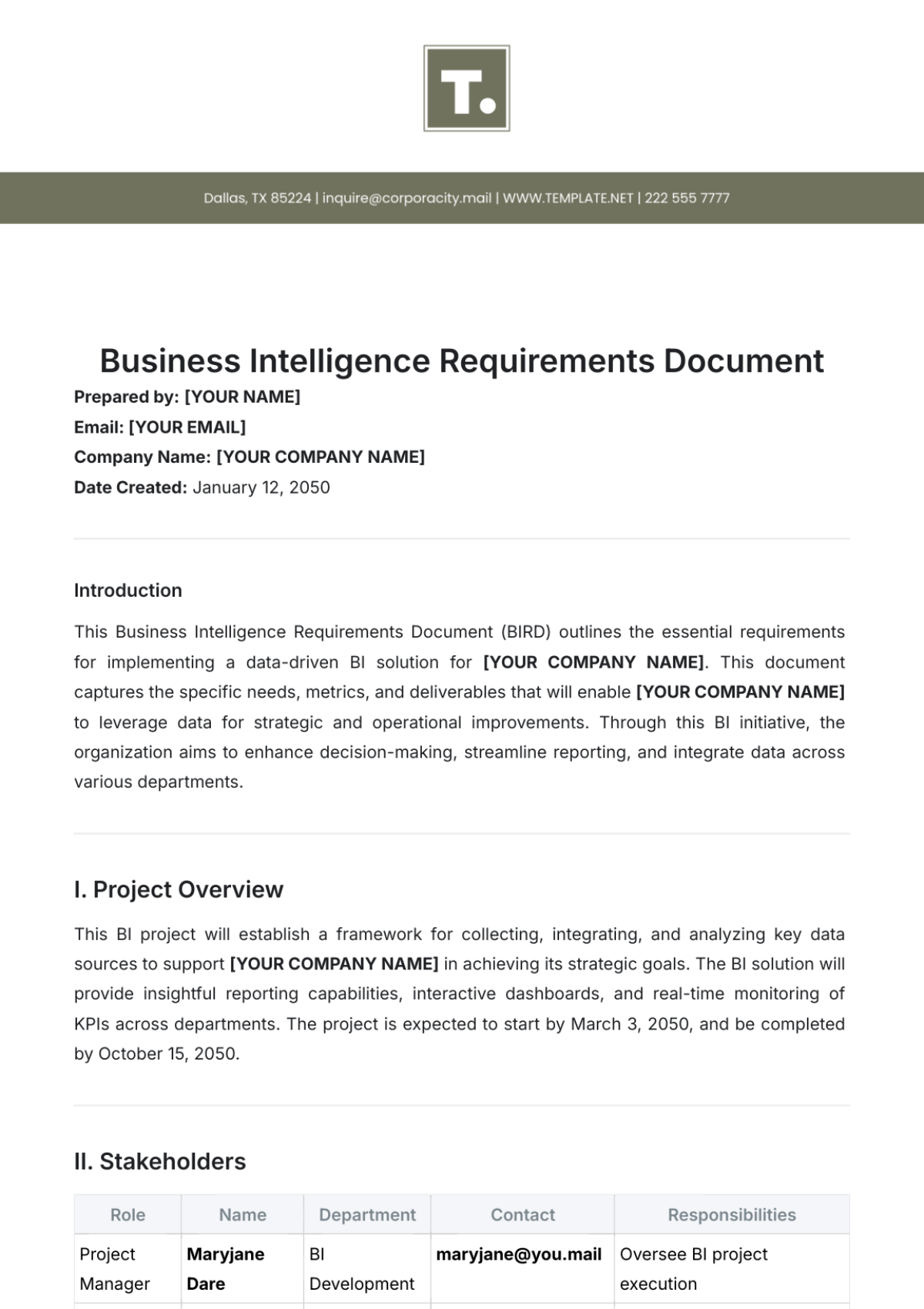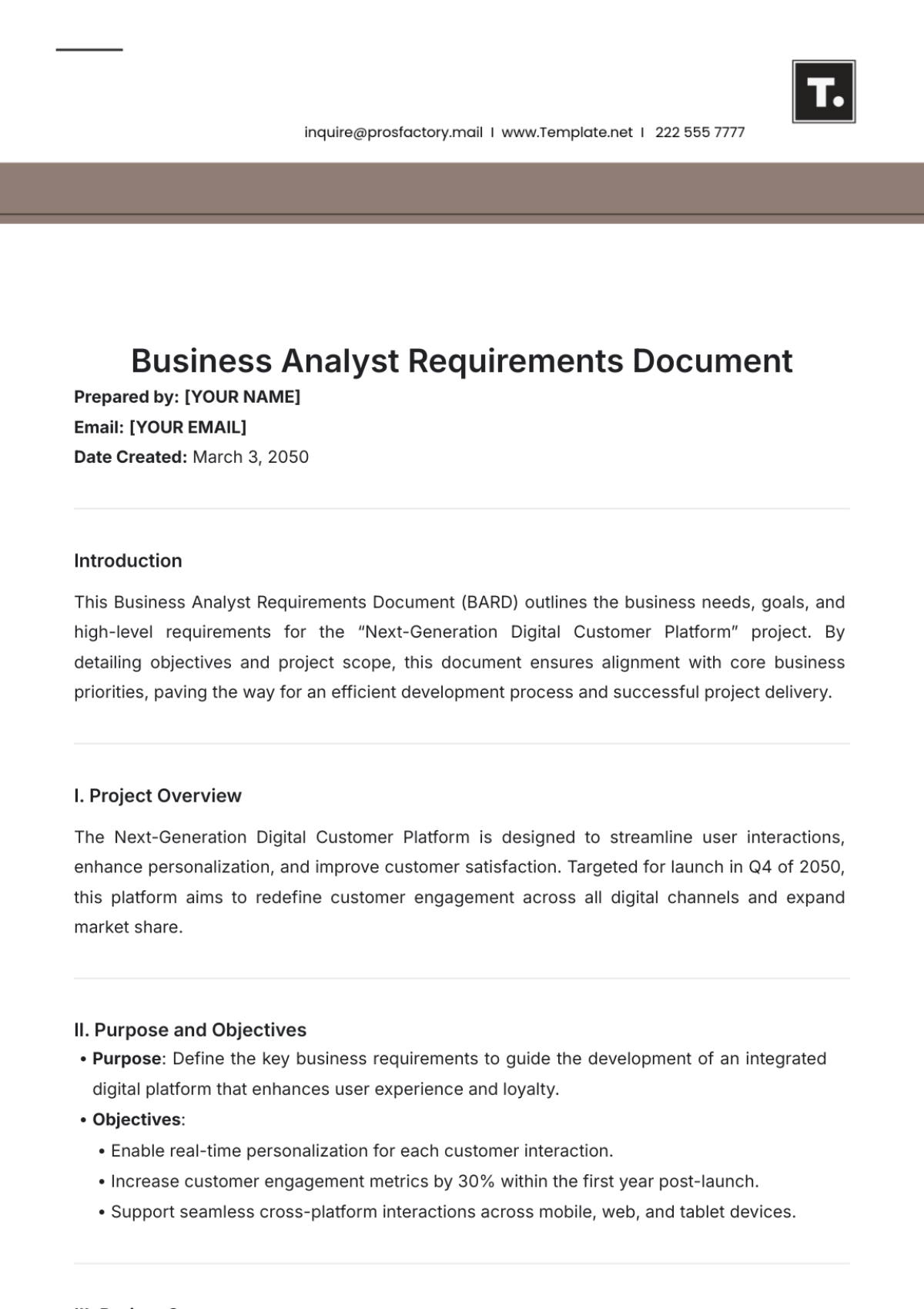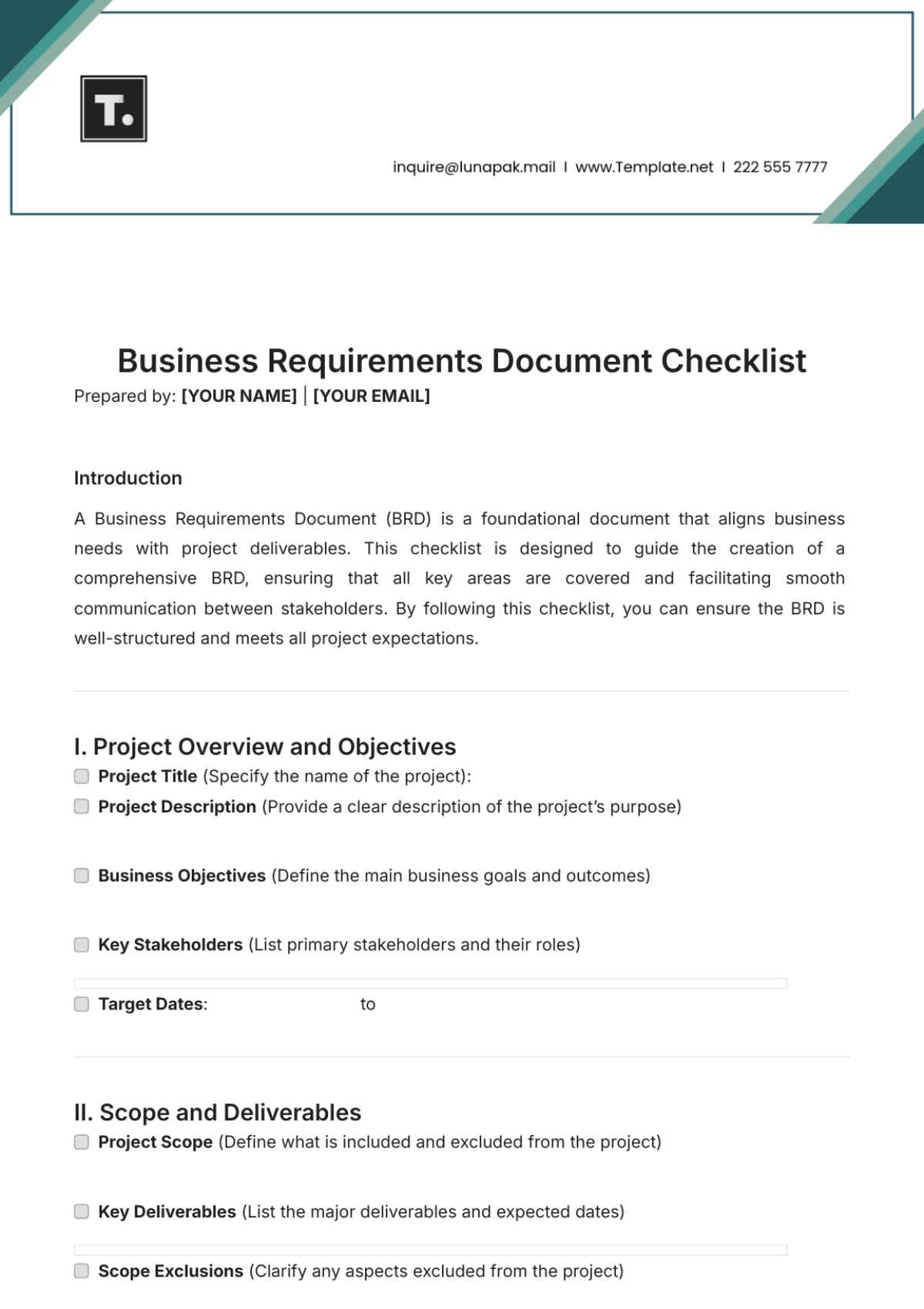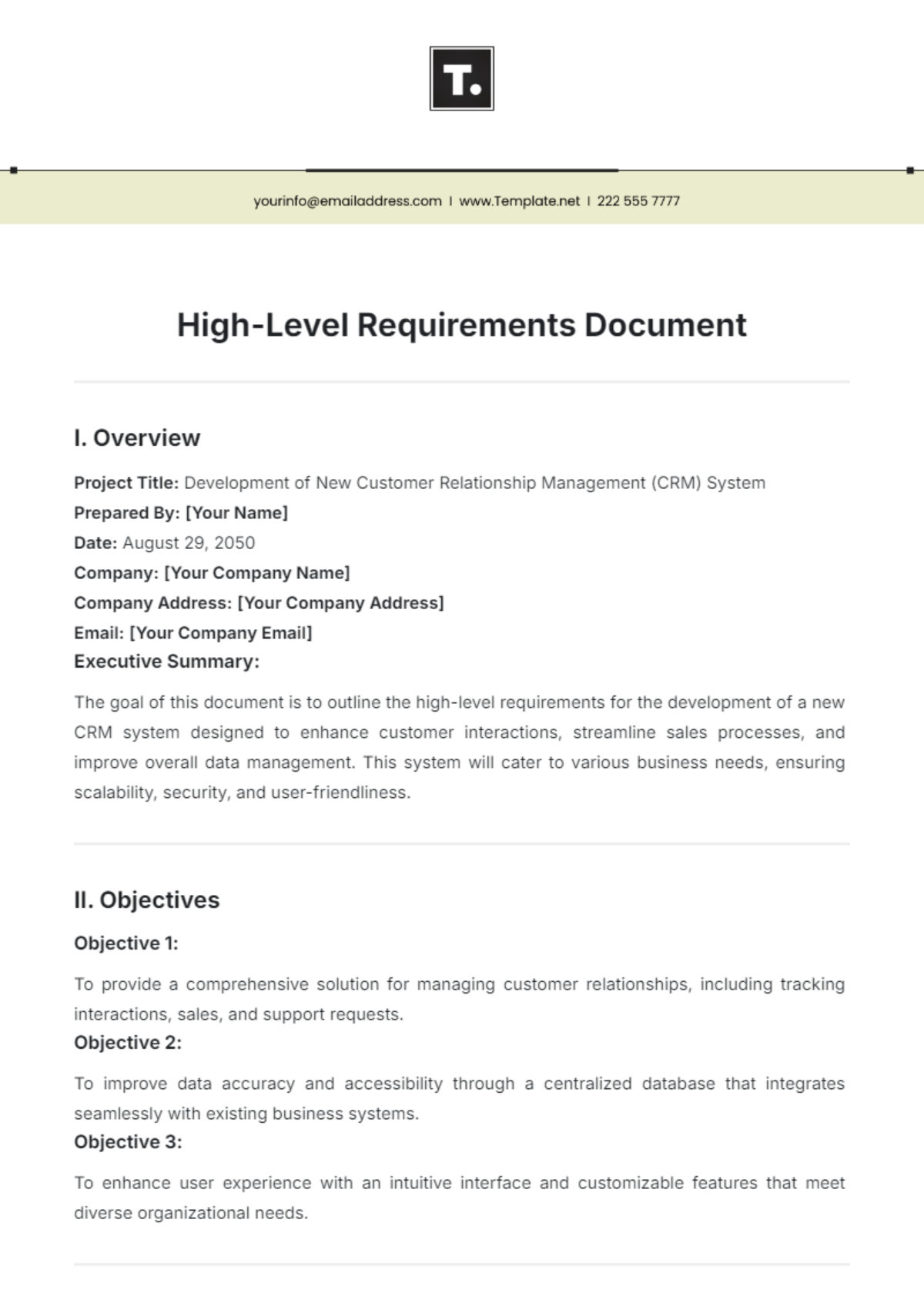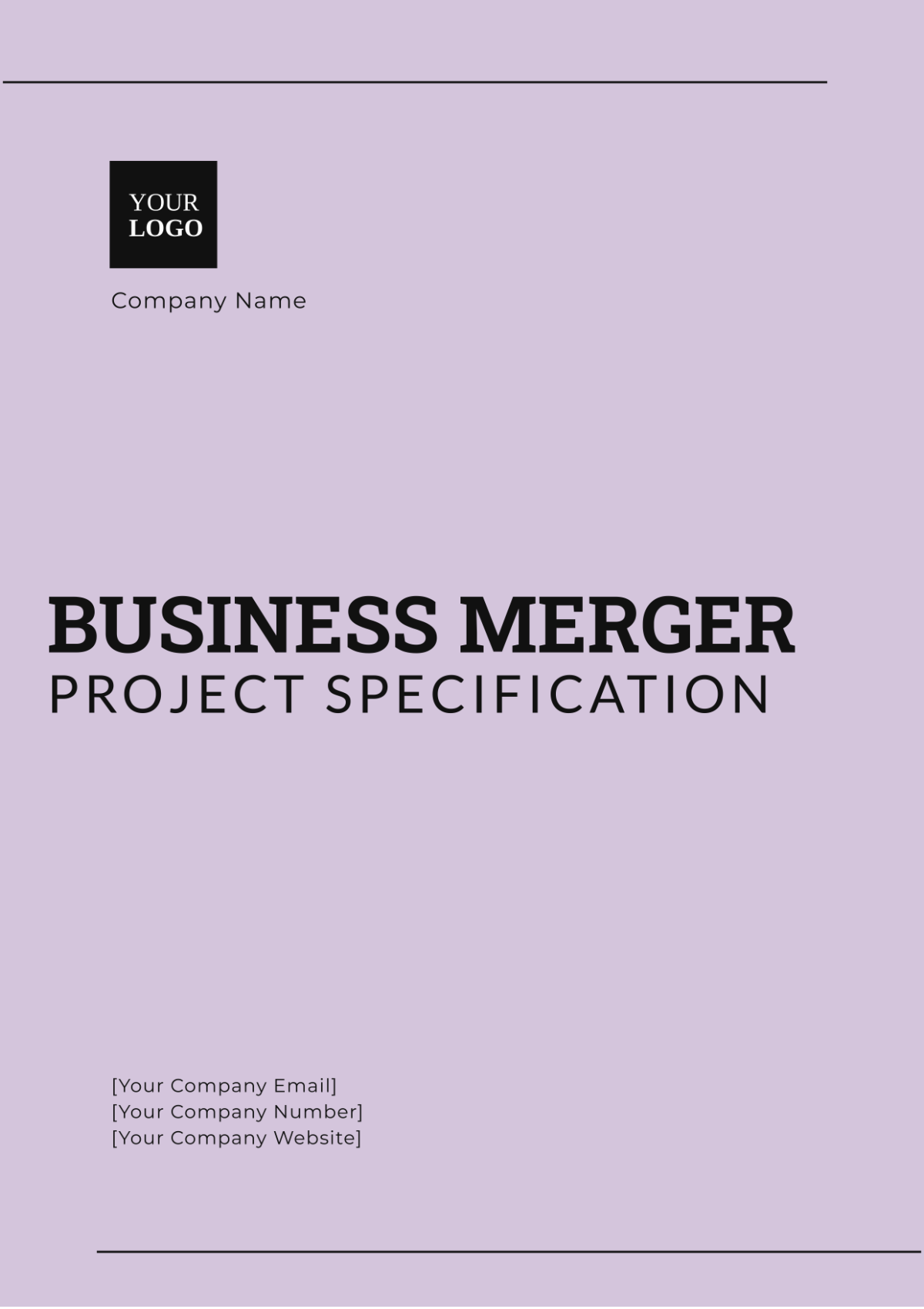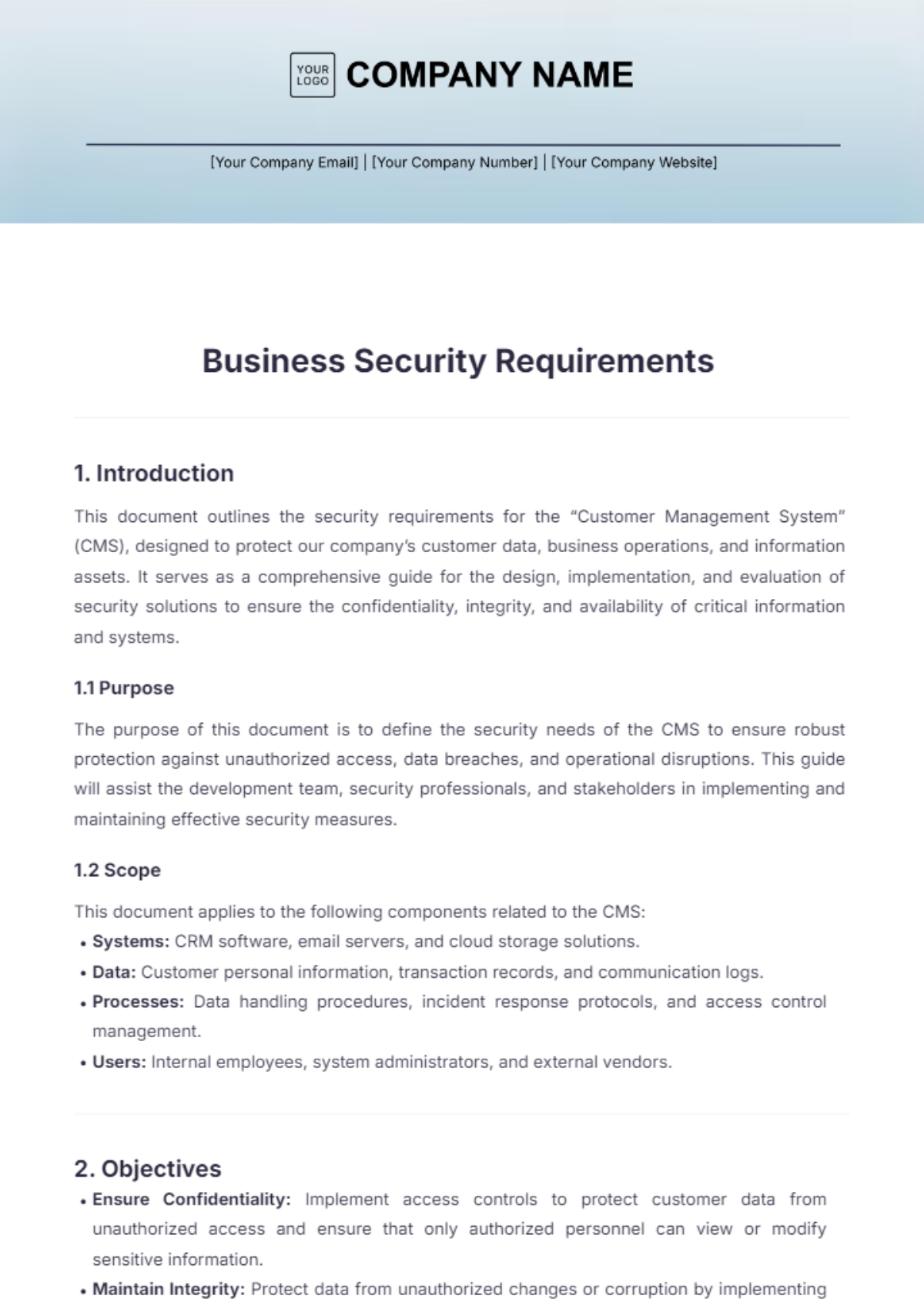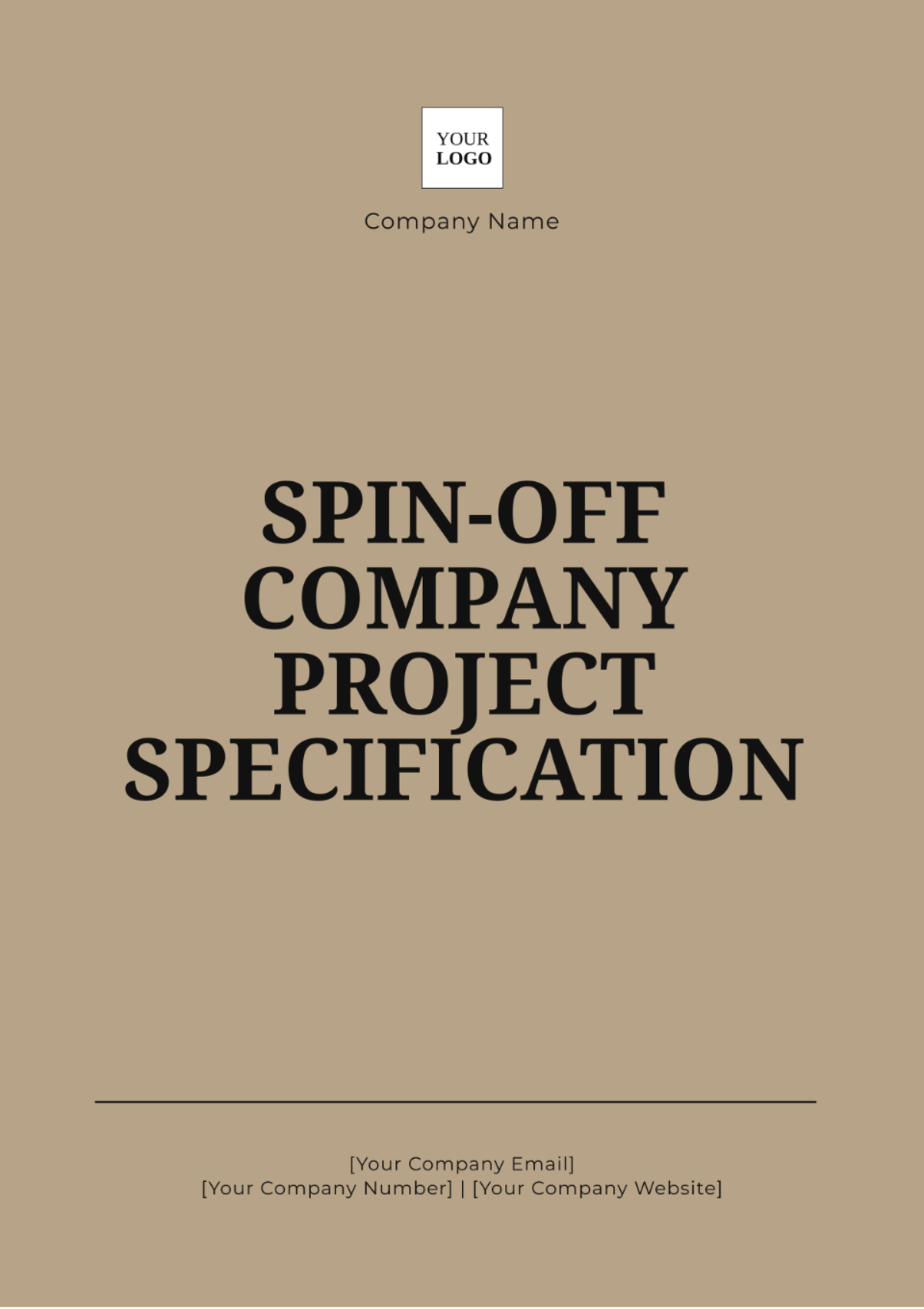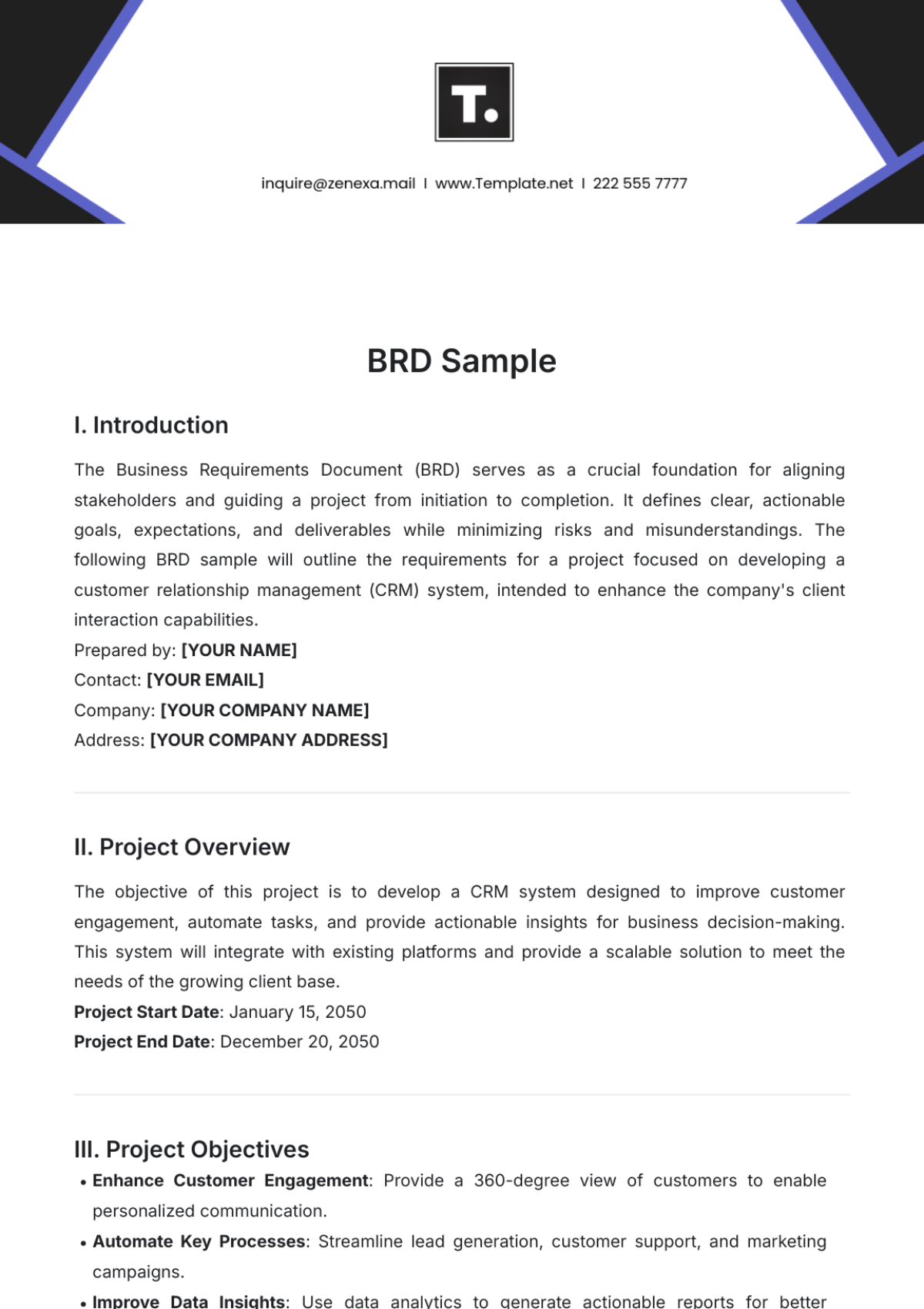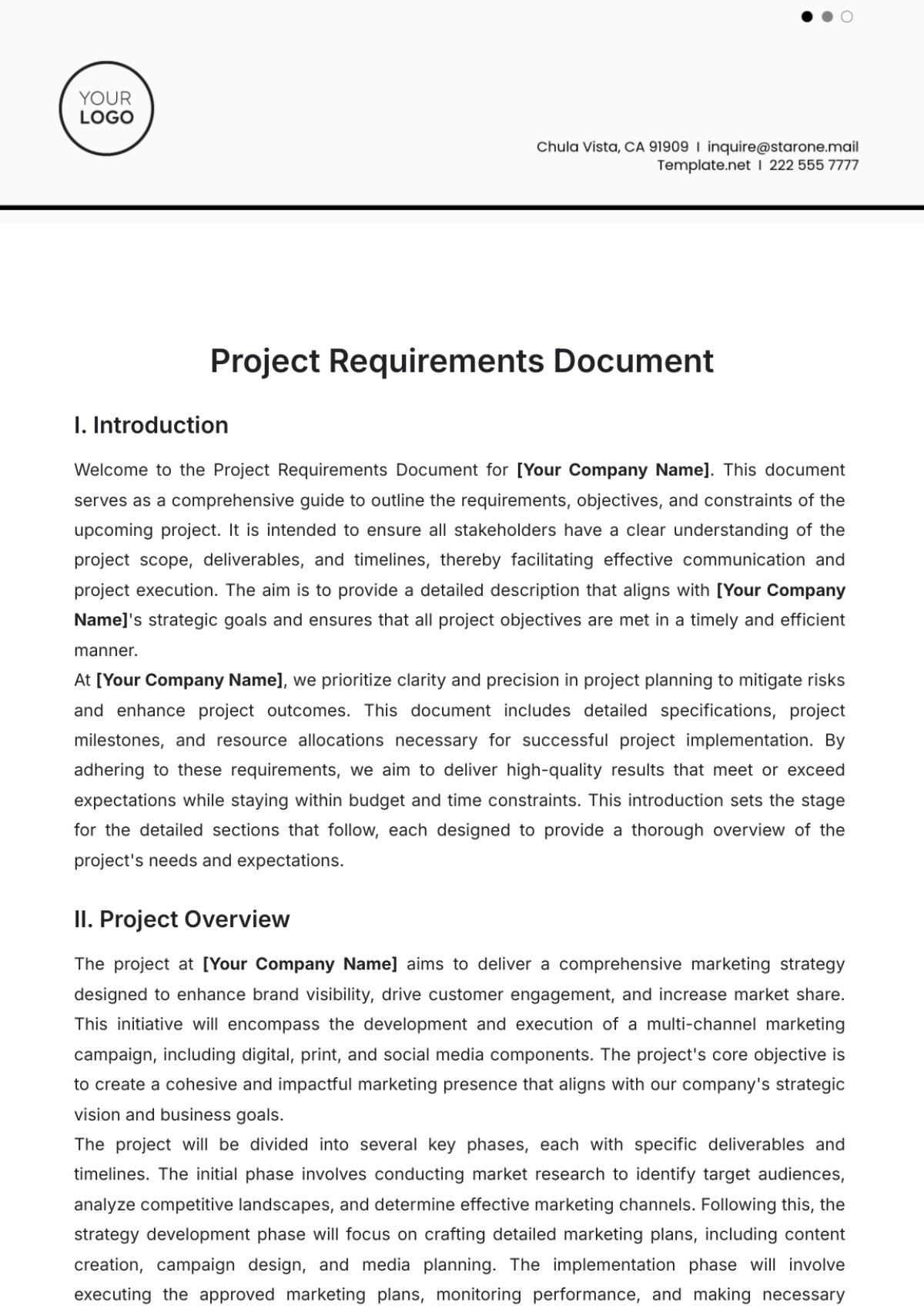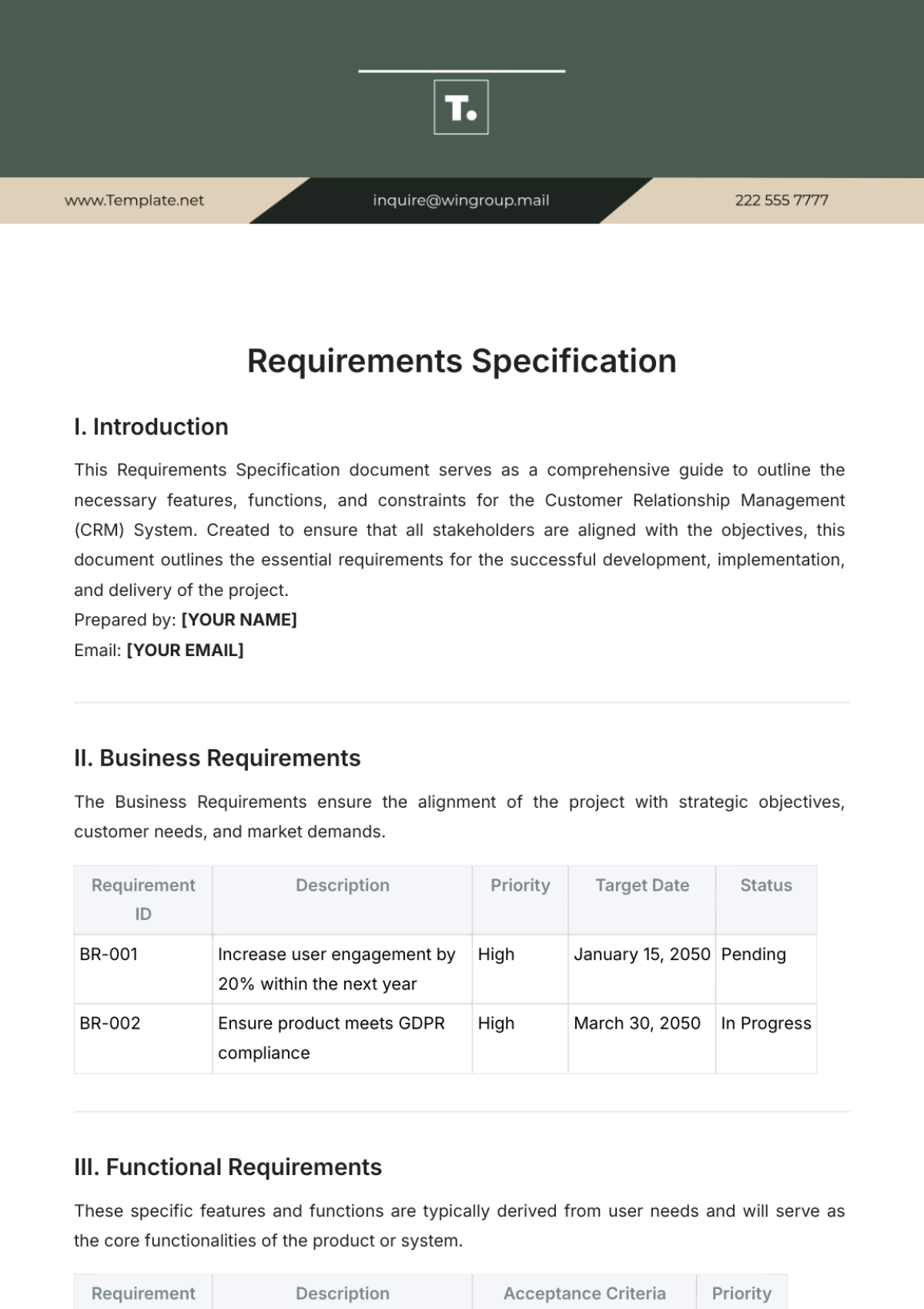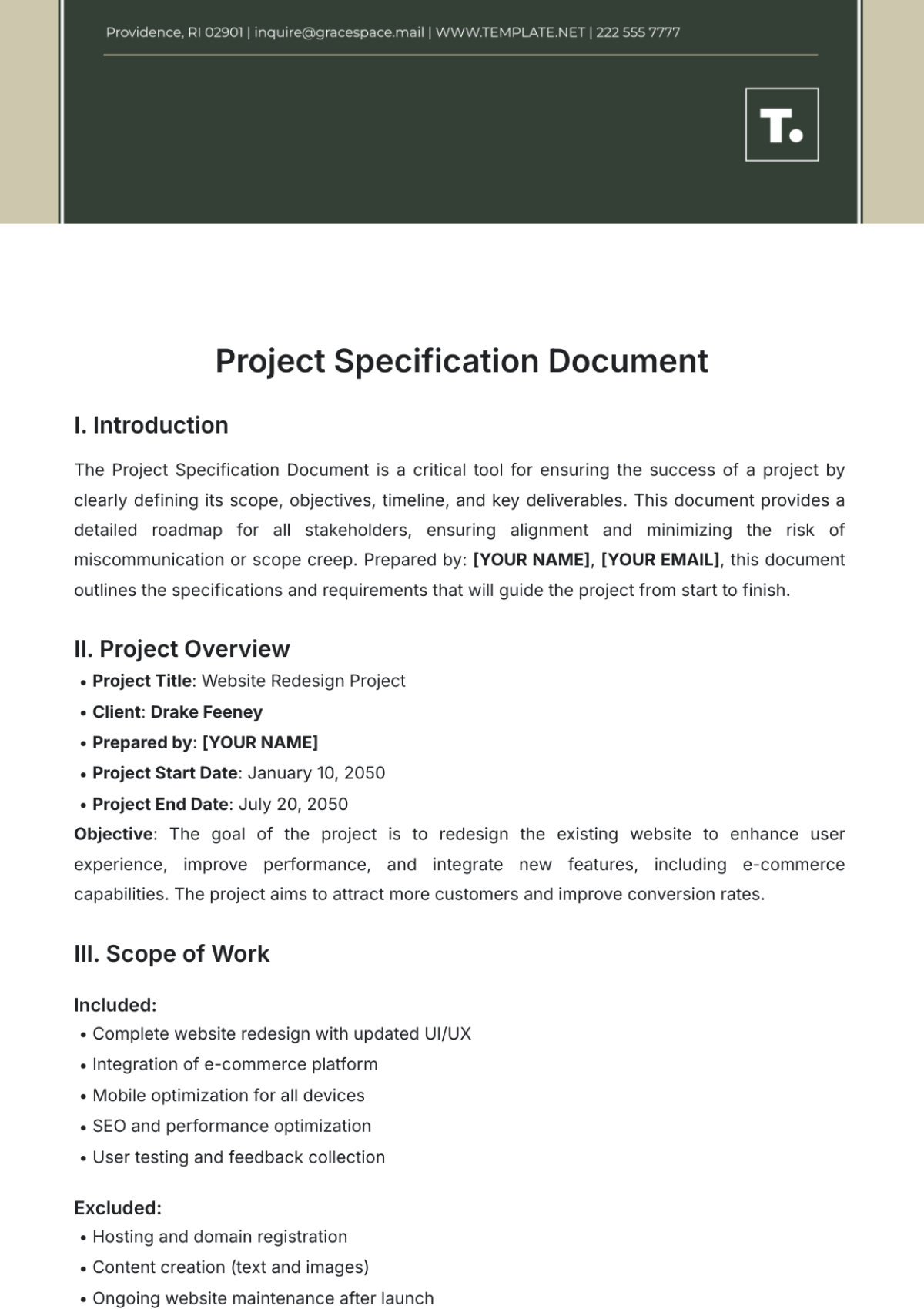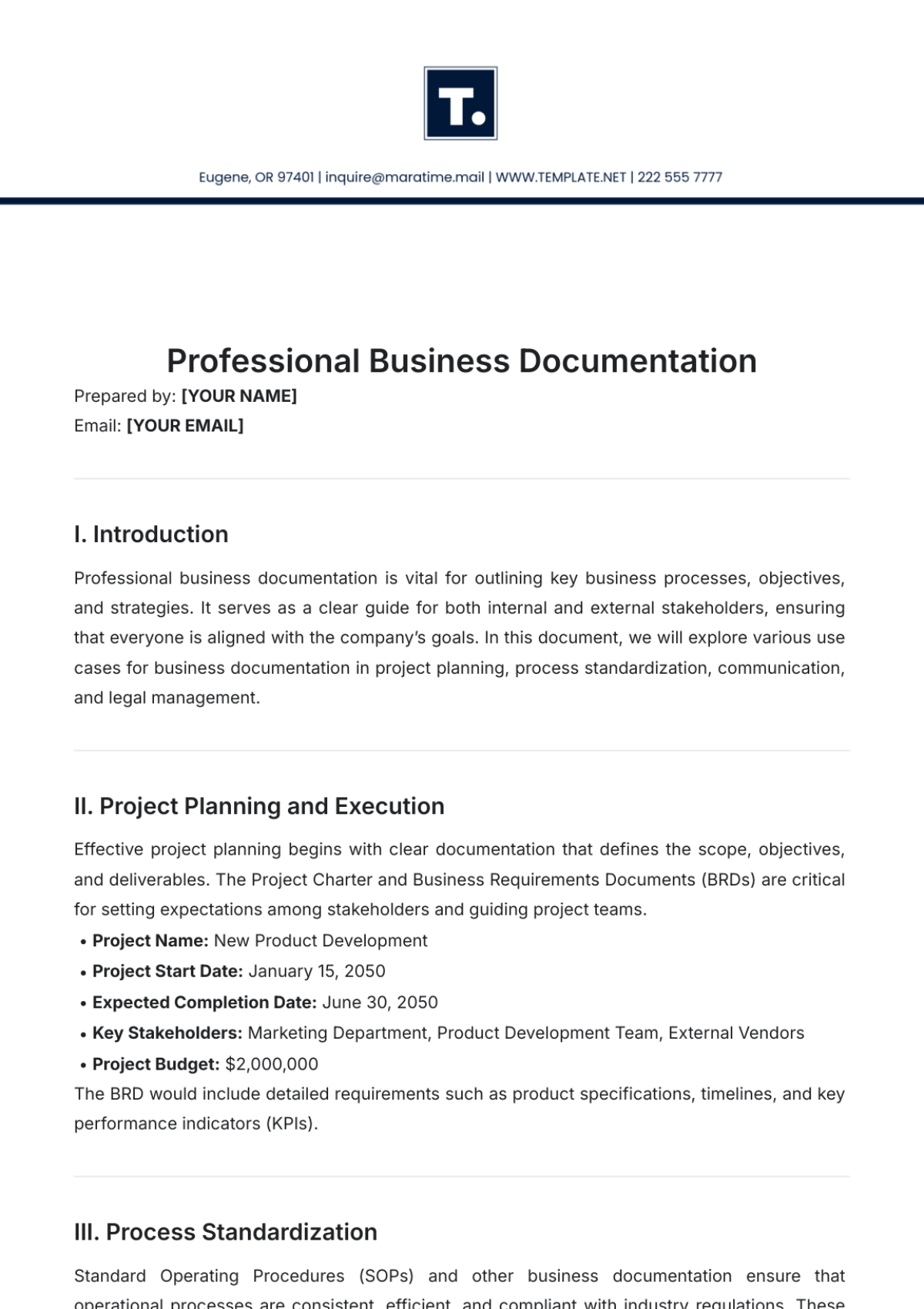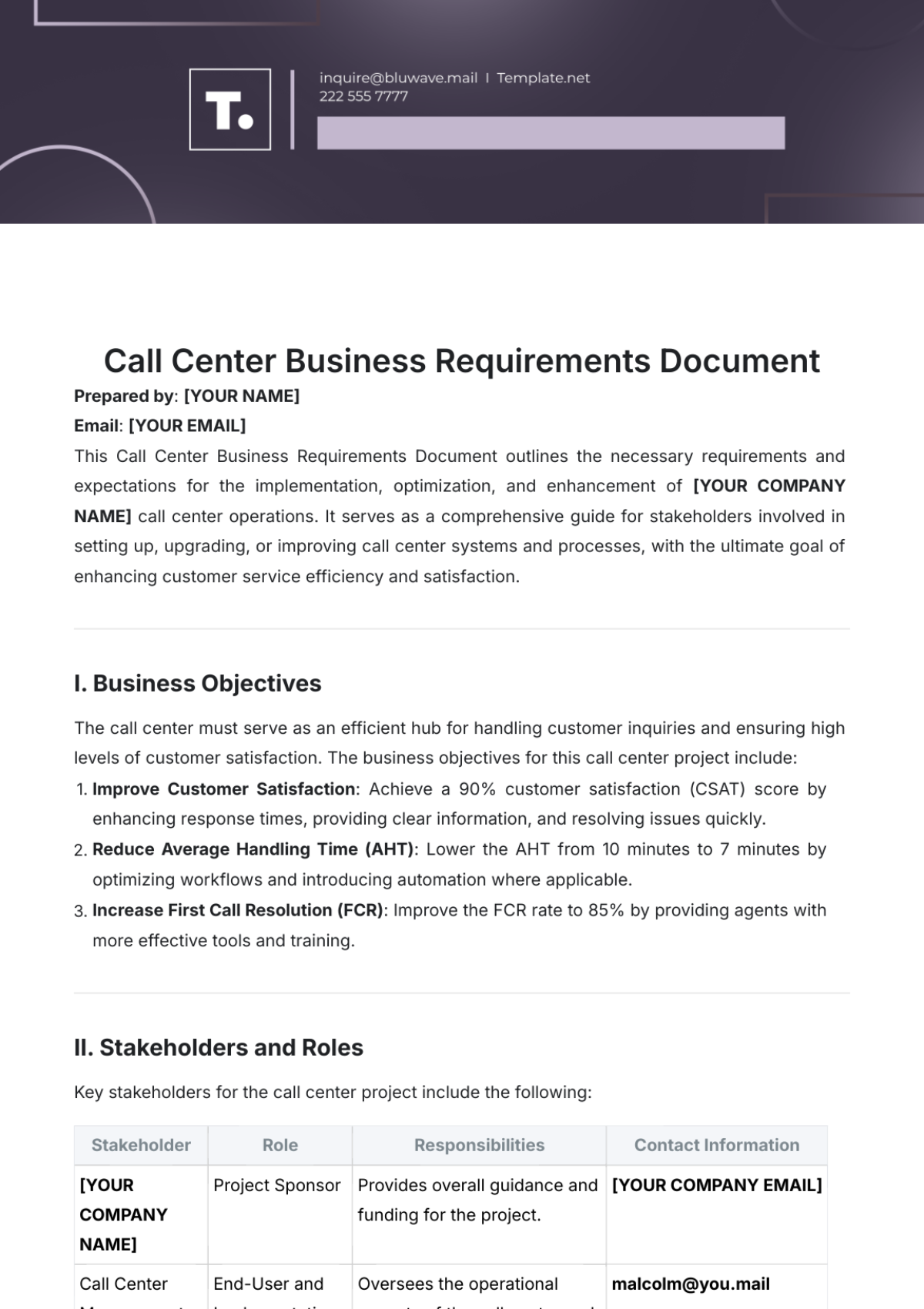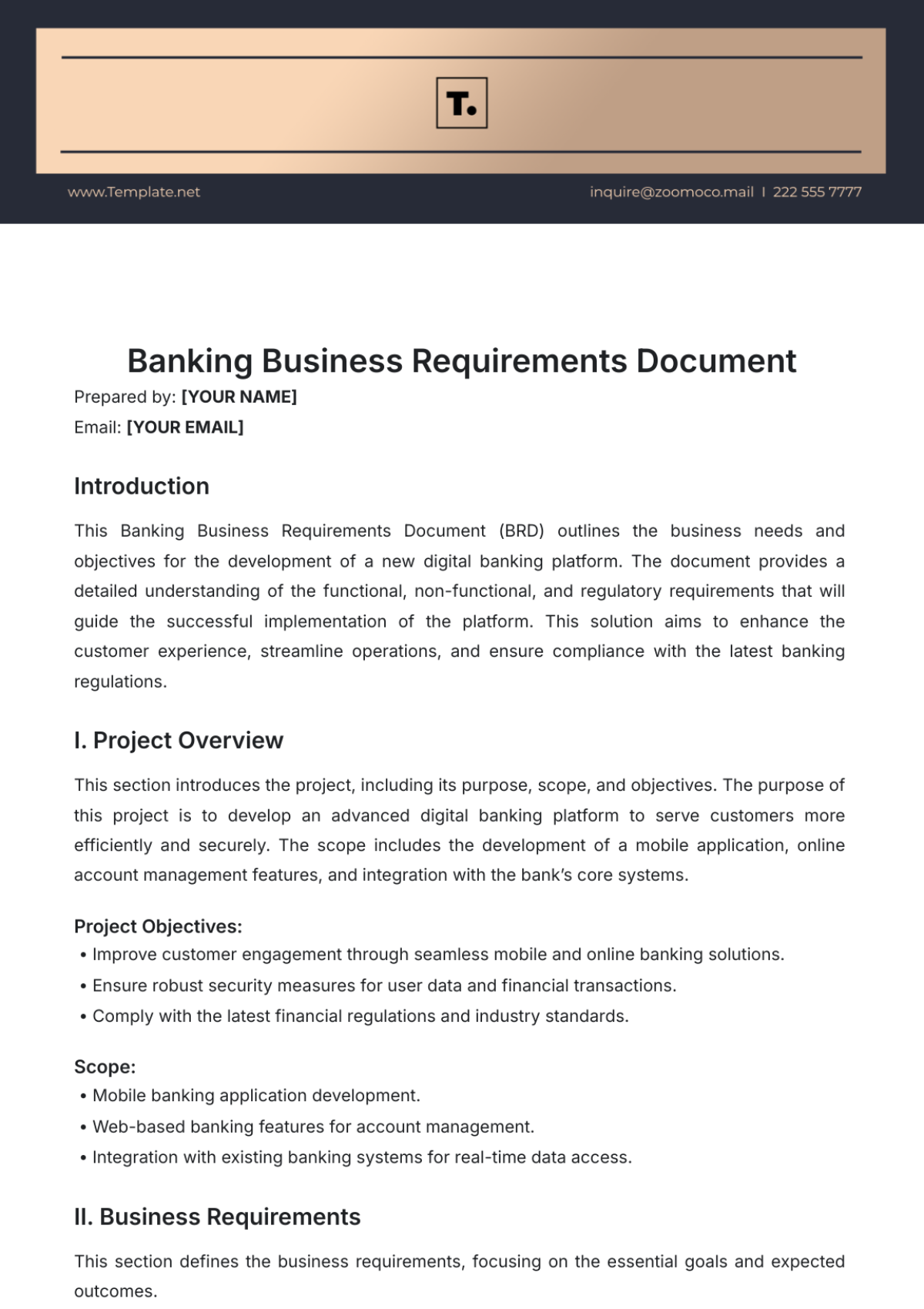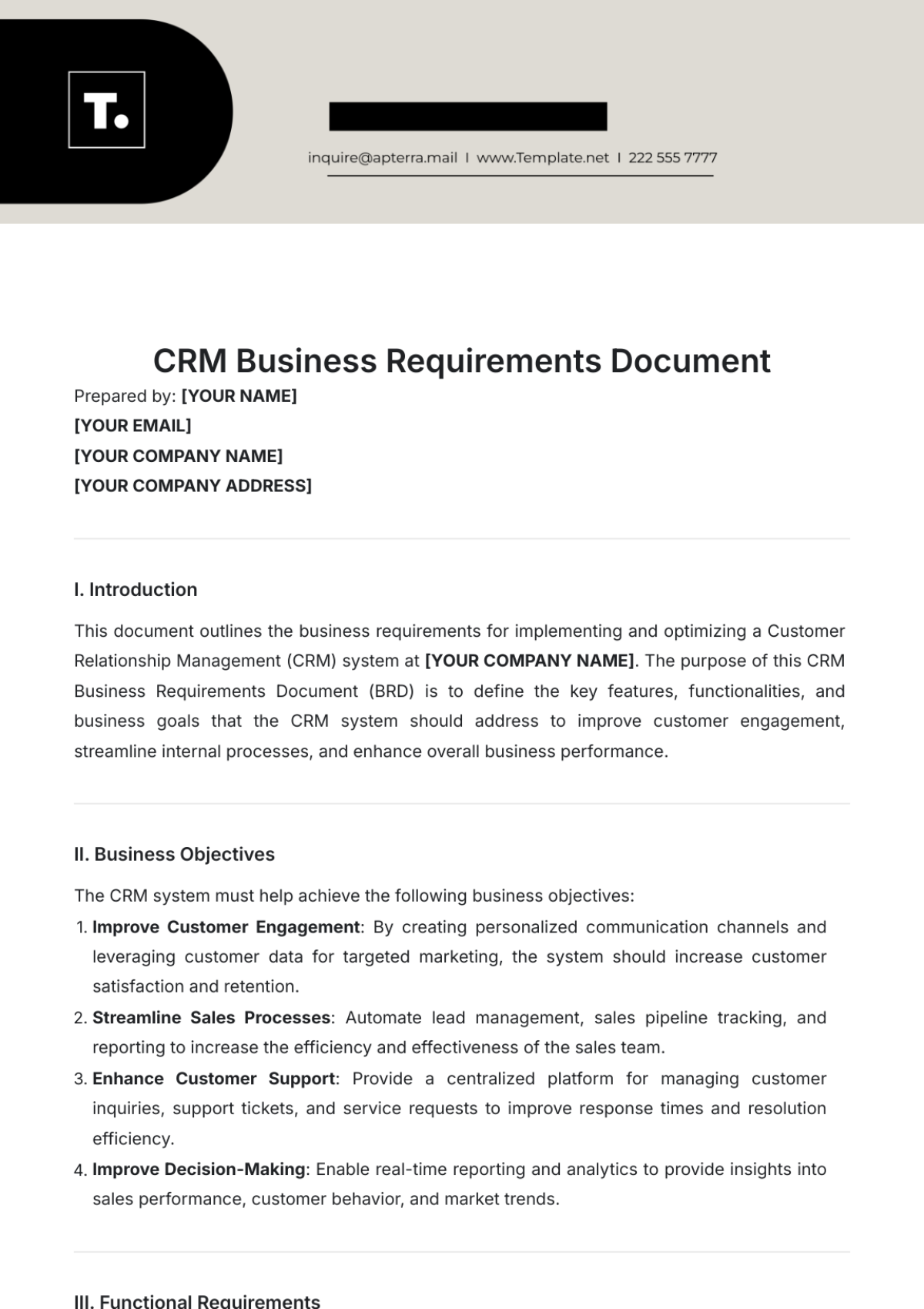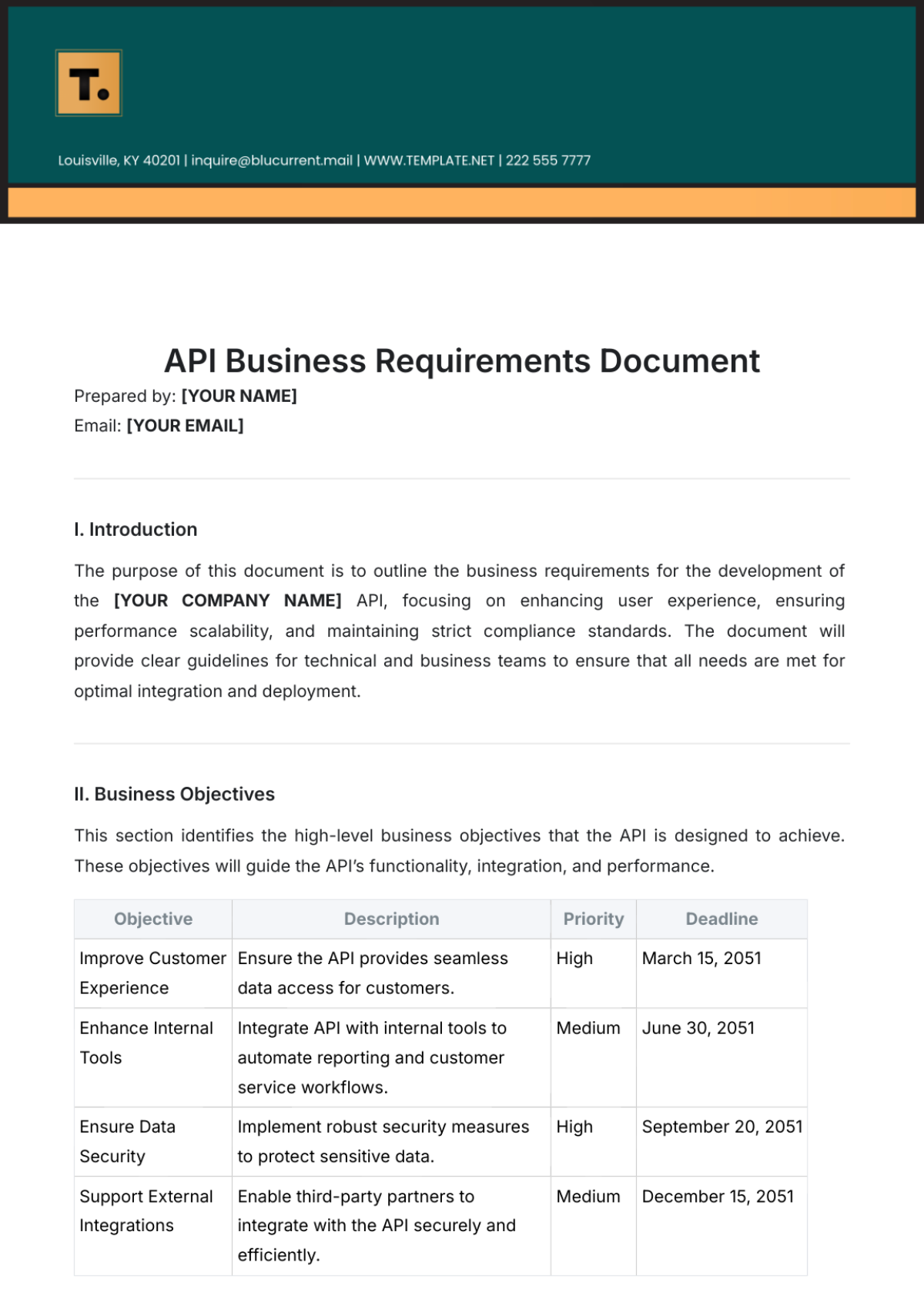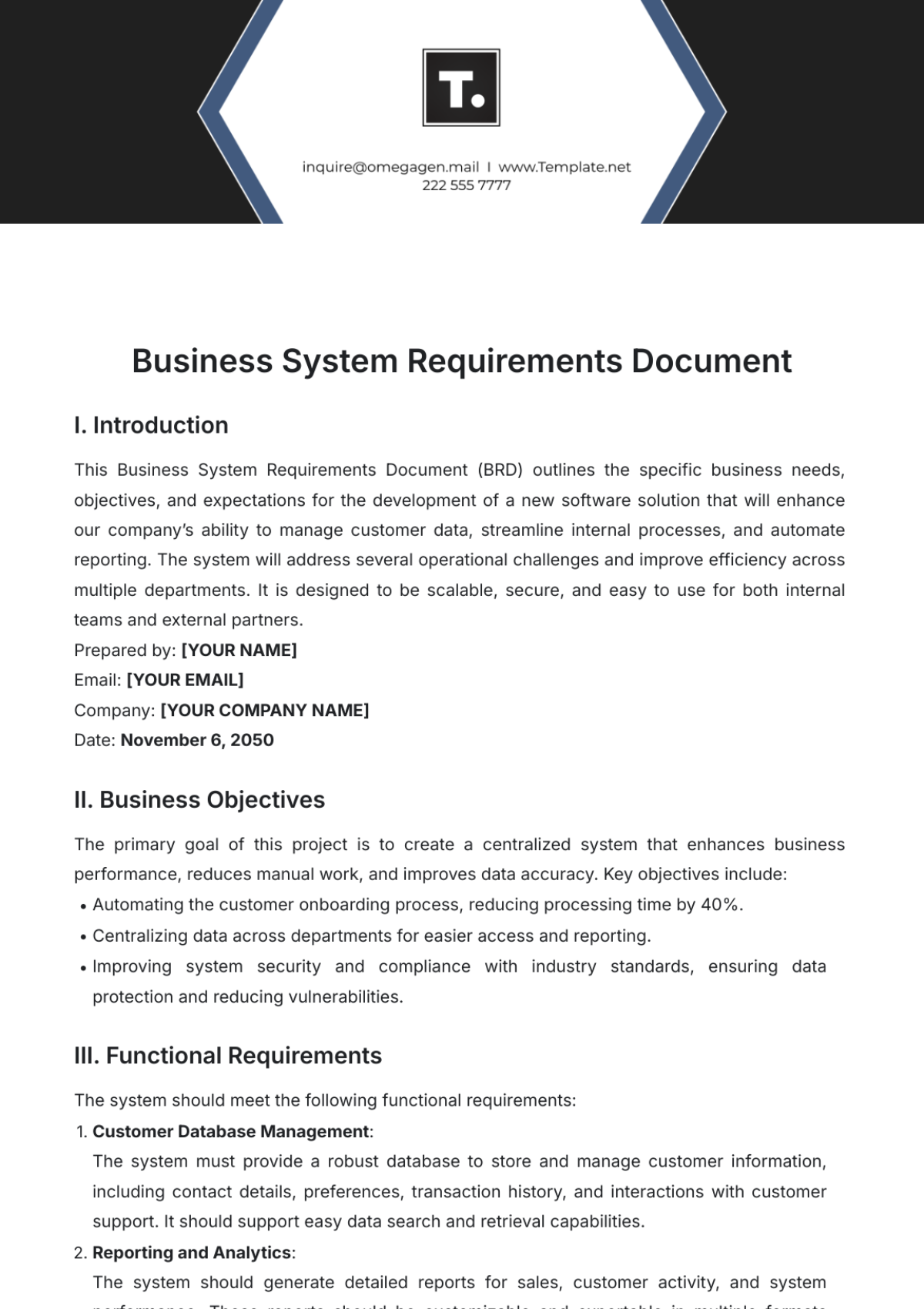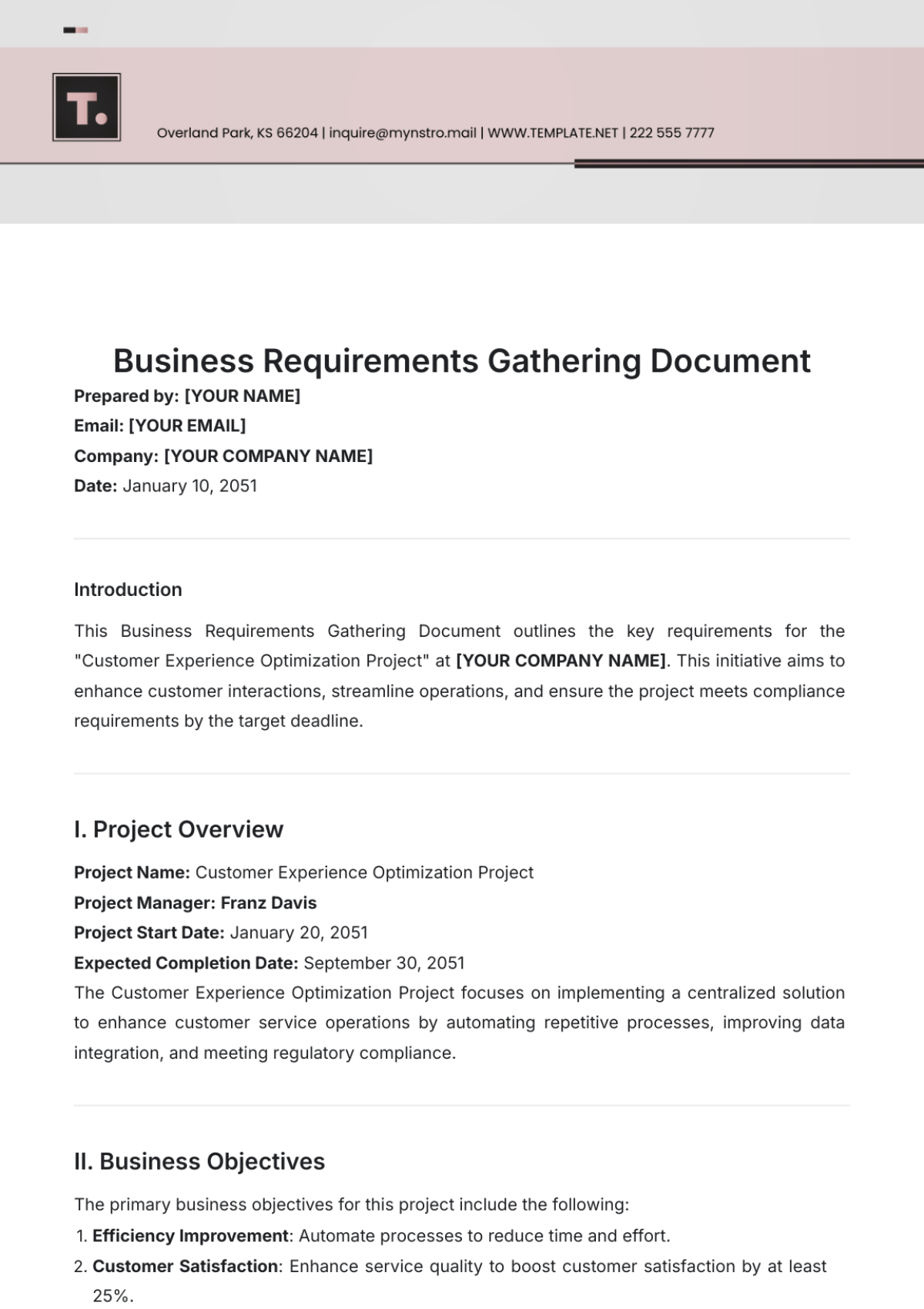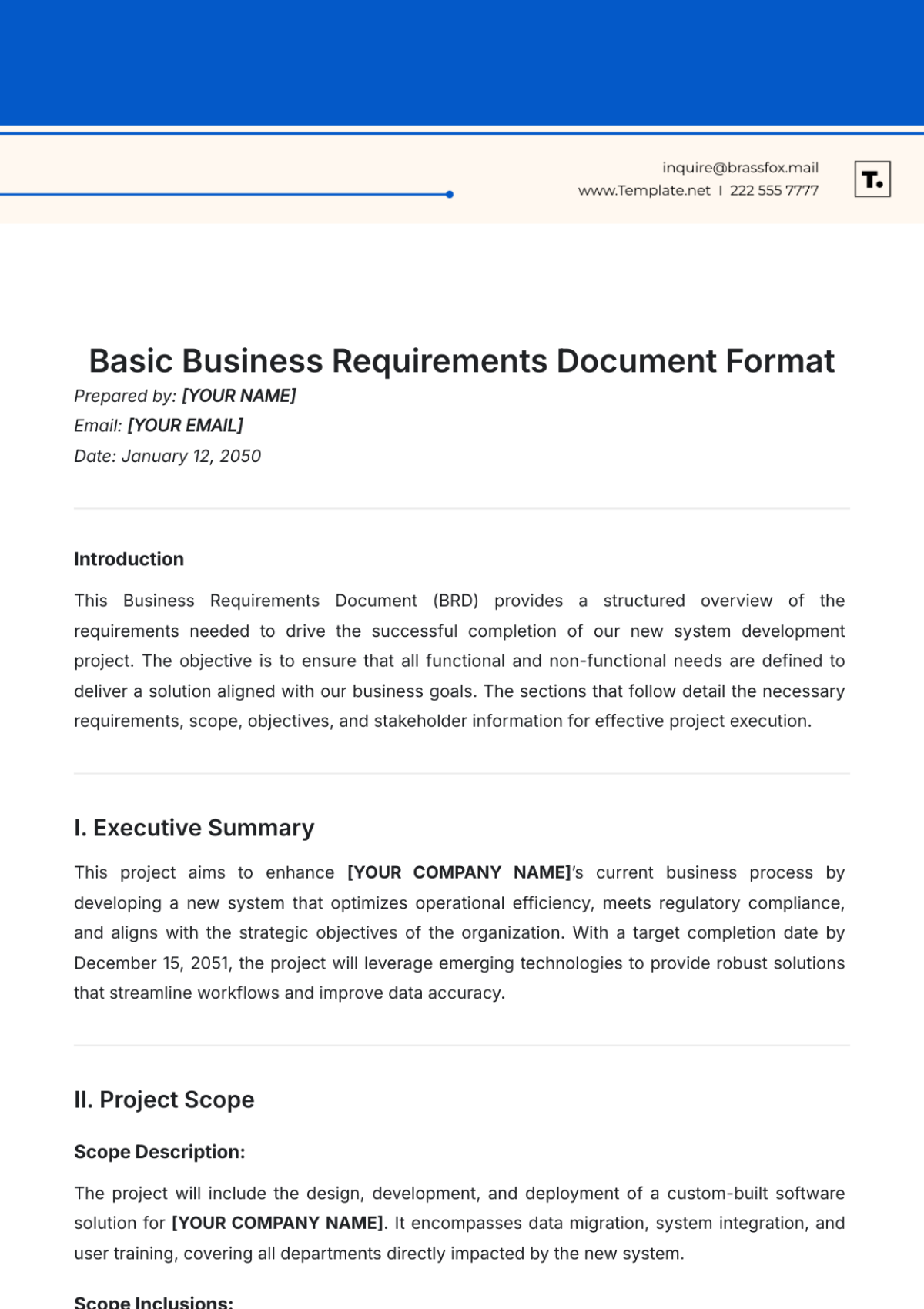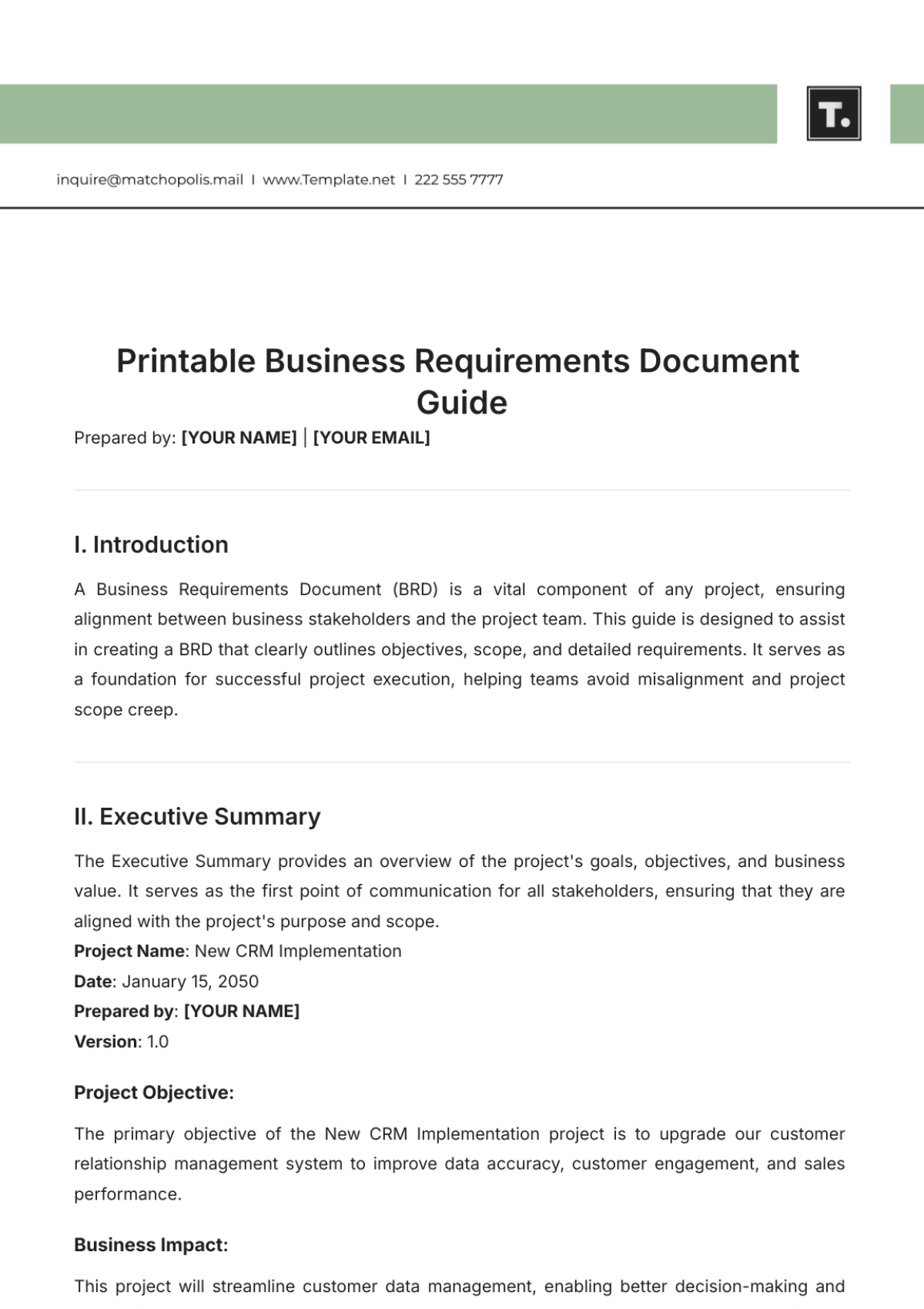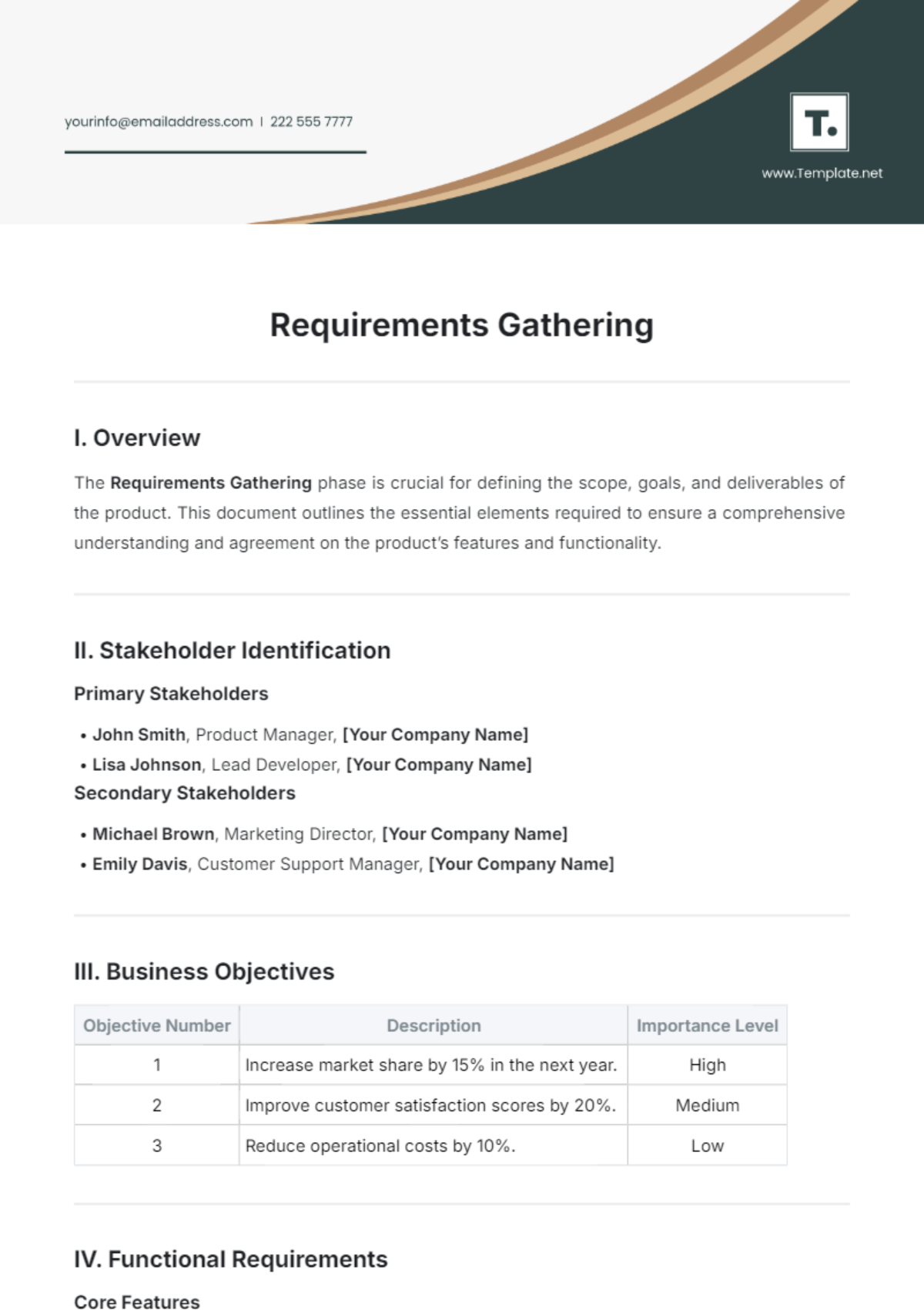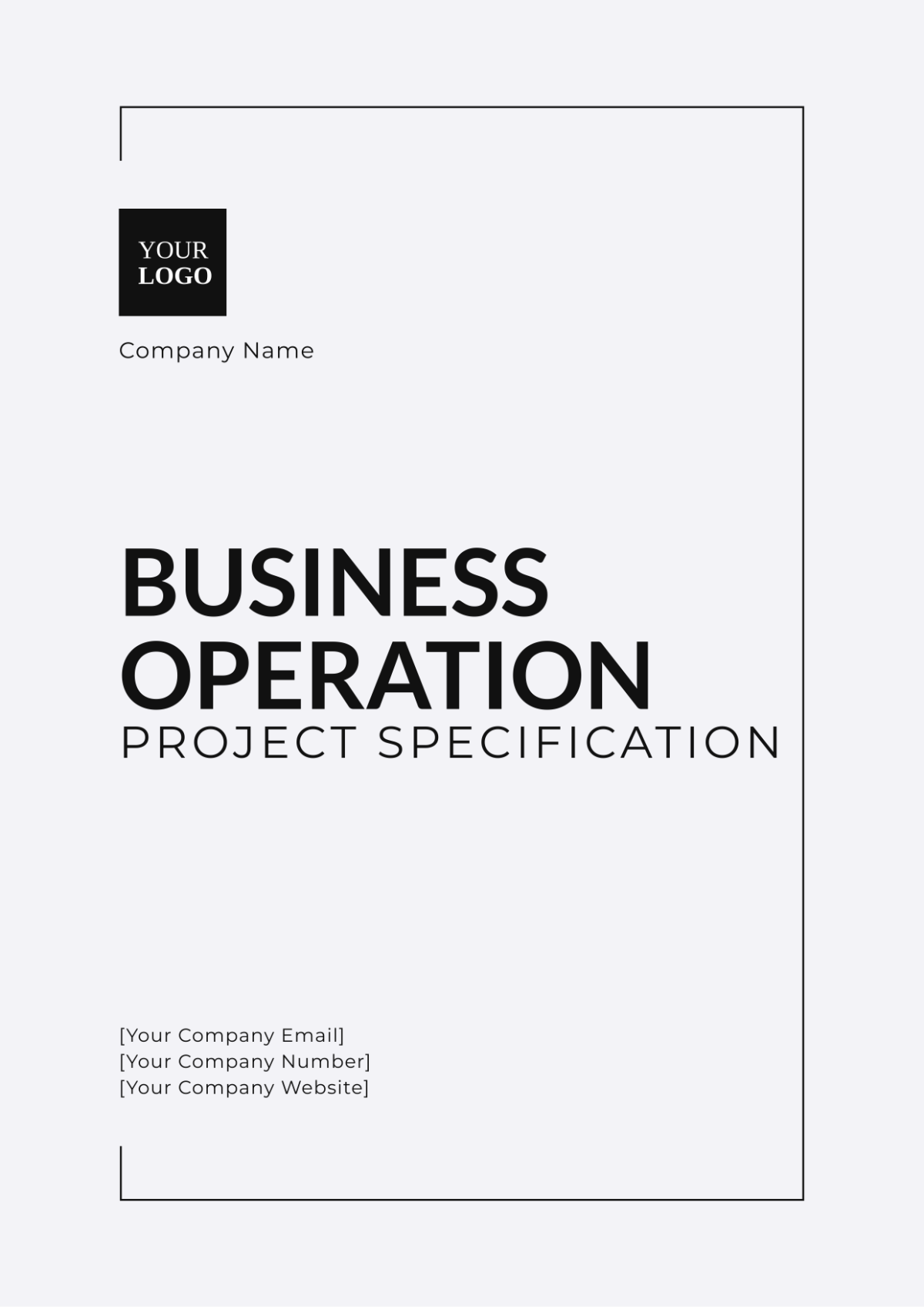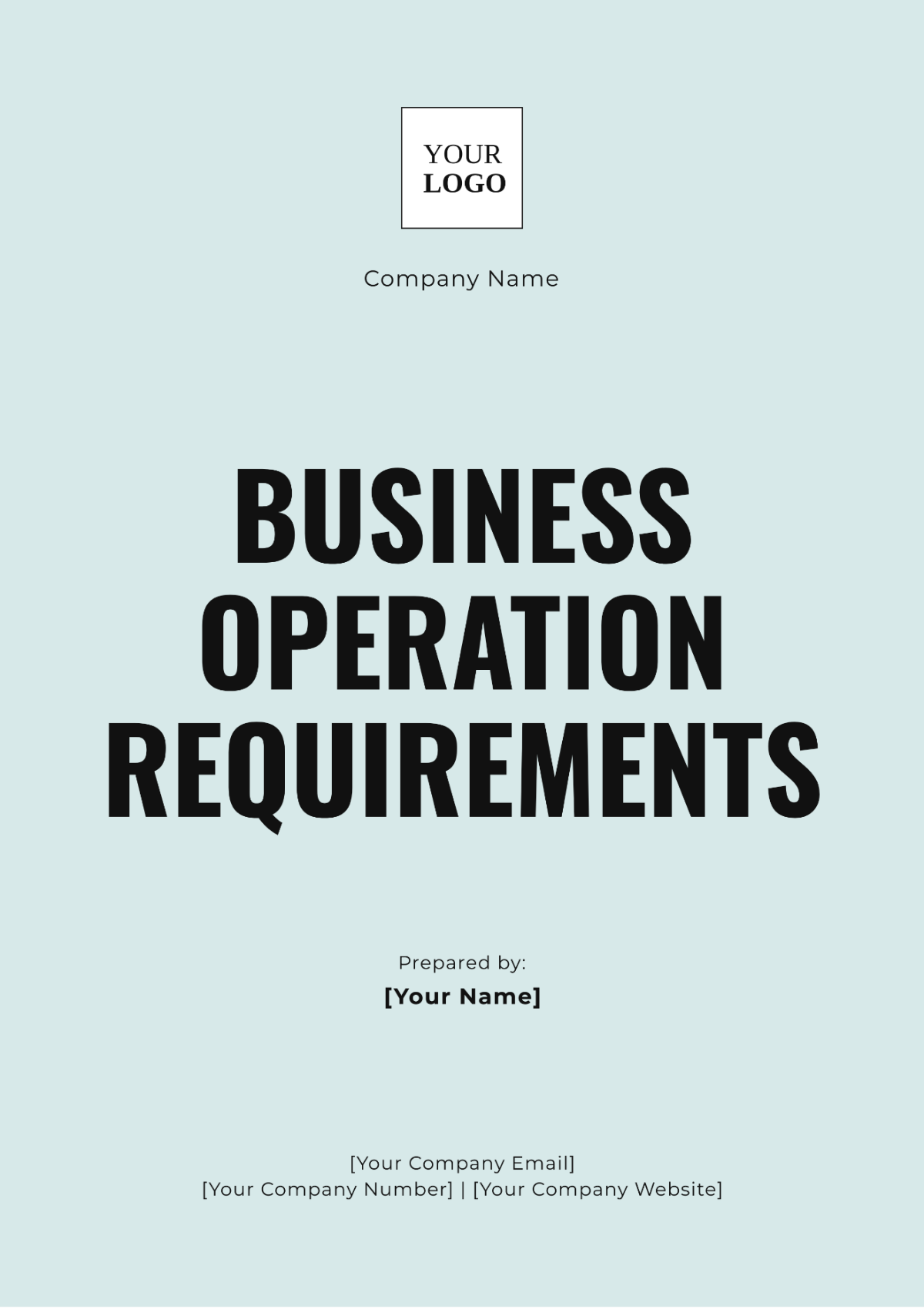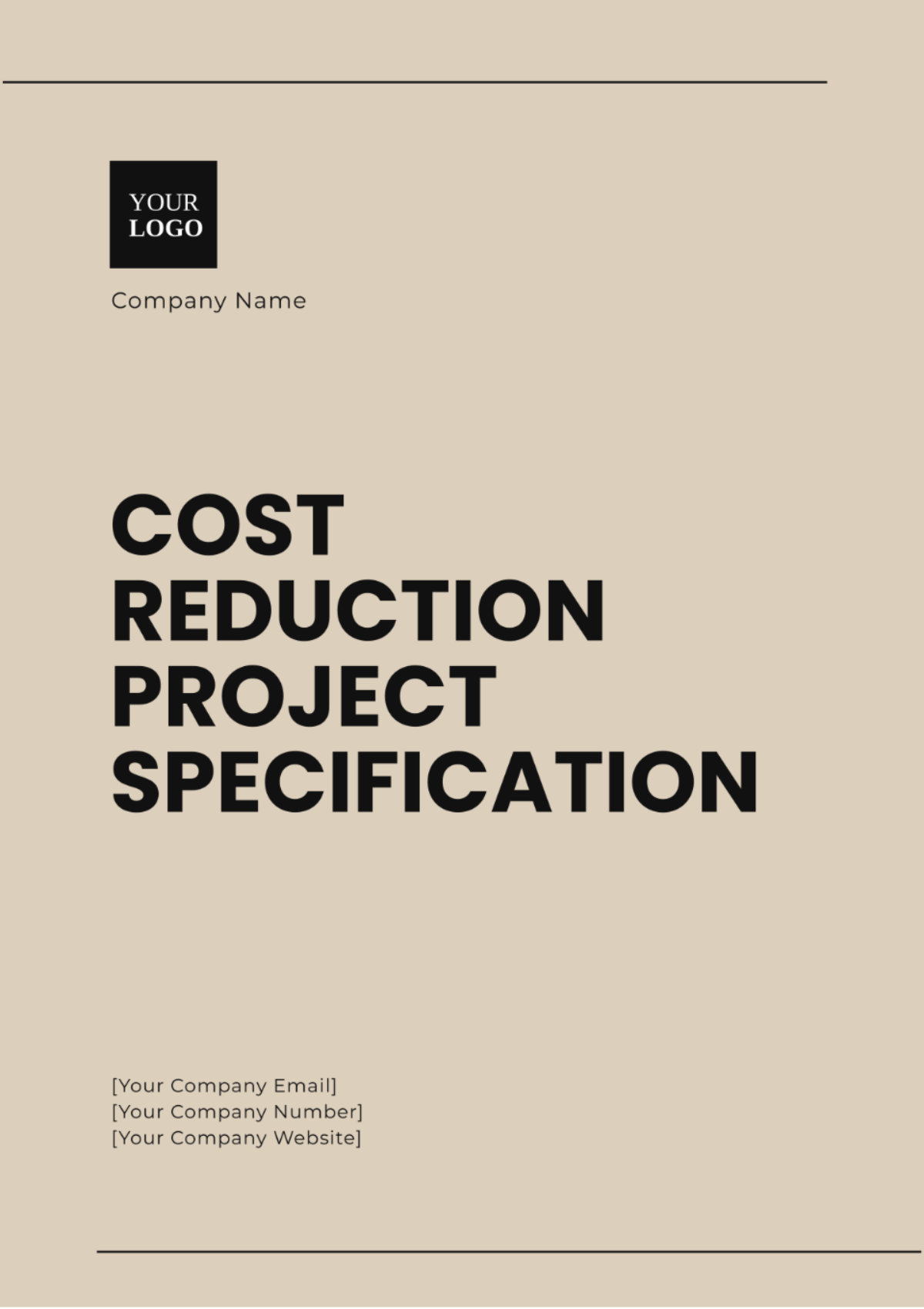Business Operation Requirements
1. Introduction
The purpose of this document is to outline the detailed operational requirements necessary to execute business operations effectively and efficiently. This document covers various aspects including human resources, technology, facilities, and regulatory compliance to ensure a comprehensive approach to operational success.
2. Human Resources
2.1 Staffing Requirements
To support business operations, the following staffing positions are required:
Position | Number Required | Qualifications |
|---|---|---|
Operations Manager | 1 | MBA or equivalent, 5+ years of experience |
Technical Support | 3 | BS in Computer Science, 2+ years of experience |
Customer Service Representative | 5 | High School Diploma, Excellent communication skills |
2.2 Training Programs
All employees must undergo a mandatory training program focused on company policies, customer service, and technical skills relevant to their roles. Ongoing training sessions will be conducted quarterly to ensure skills and competencies are up-to-date. These training programs are designed to foster continuous improvement and adaptation to new technologies and methodologies.
3. Technology
3.1 Software Requirements
The following software systems are essential to support business operations:
Software | Purpose | Vendor |
|---|---|---|
ERP System | Manage resources and operations | SAP |
CRM System | Customer Relationship Management | Salesforce |
Helpdesk Software | Technical support and issue tracking | Zendesk |
3.2 Hardware Requirements
The necessary hardware components include the following:
Hardware | Specifications | Quantity |
|---|---|---|
Servers | 16-core CPU, 64GB RAM, 1TB SSD | 2 |
Computers | i7 Processor, 16GB RAM, 512GB SSD | 10 |
Network Switches | 24-port gigabit switches | 3 |
4. Facilities
4.1 Office Space
The business requires an office space that accommodates at least 20 employees, including separate rooms for meetings and break areas. The office must be equipped with high-speed internet connectivity, power backups, and ergonomic furniture to ensure a comfortable and productive work environment.
4.2 Security Measures
Security measures must include 24/7 surveillance, secure access systems, and regular audits. The office should also have a fire safety system including alarms, extinguishers, and an evacuation plan. These measures are critical to ensuring the safety and security of both employees and company assets.
5. Regulatory Compliance
5.1 Industry Standards
Adherence to industry standards such as ISO 9001 for quality management and ISO 27001 for information security is mandatory. Regular audits and certifications should be maintained to ensure compliance and continuous improvement.
5.2 Legal Requirements
The business must comply with all local, state, and federal regulations related to labor laws, environmental regulations, and data protection (e.g., GDPR). Legal counsel should be consulted to ensure all operations are compliant, and regular reviews should be conducted to stay current with any changes in legislation.
6. Conclusion
The outlined requirements aim to create a structured approach to business operations, ensuring that all necessary resources and processes are in place. Adhering to these requirements will help in achieving operational efficiency and compliance, ultimately contributing to the overall success and sustainability of the business.
